Tanzania is without a doubt one of my favourite places on the planet! My experience exploring this country was nothing short of incredible. I would go so far as to say the experience was priceless.
The actual cost of my 20-day Tanzania safari was fairly reasonable (for a Tanzania safari anyway!) at around $350 per day.
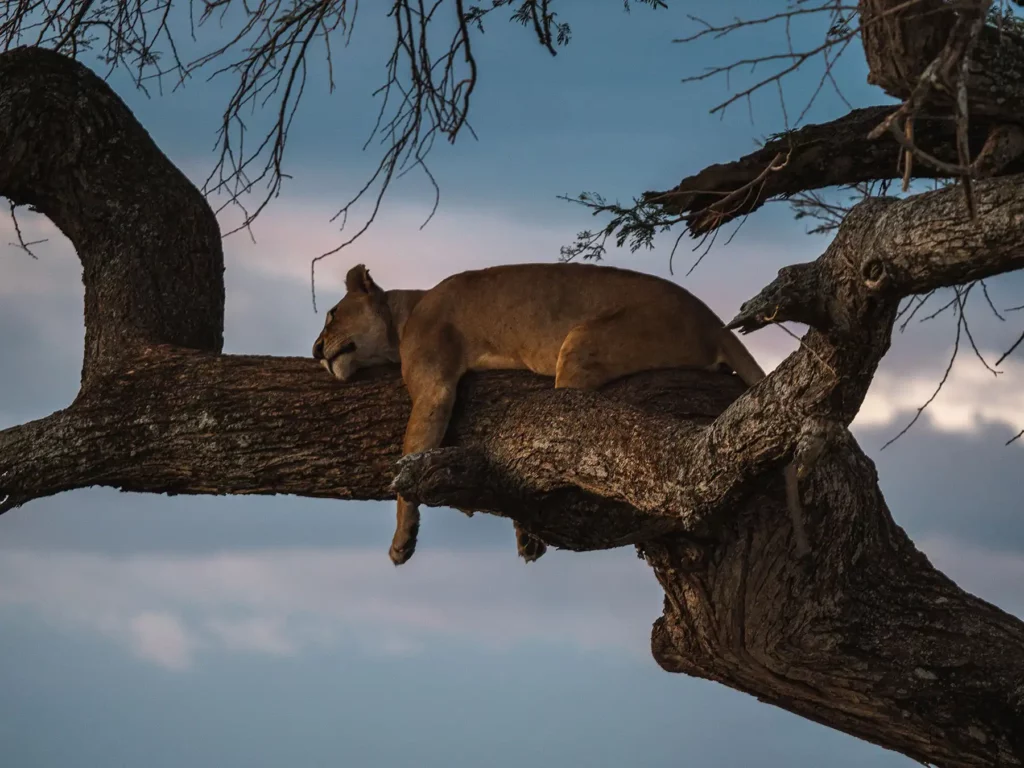
I’ve set out to give you the most up-to-date and comprehensive guide available on the topic of Tanzania safari costs in 2026.
I’m going to cover what you’ll receive in terms of safari experiences and accommodation from the budget end of $250 per day all the way through to the luxury end where prices can be as much as $1,500 per day.
You might also find my new visual guide on the best time to visit Tanzania useful as this includes the best value times to visit.
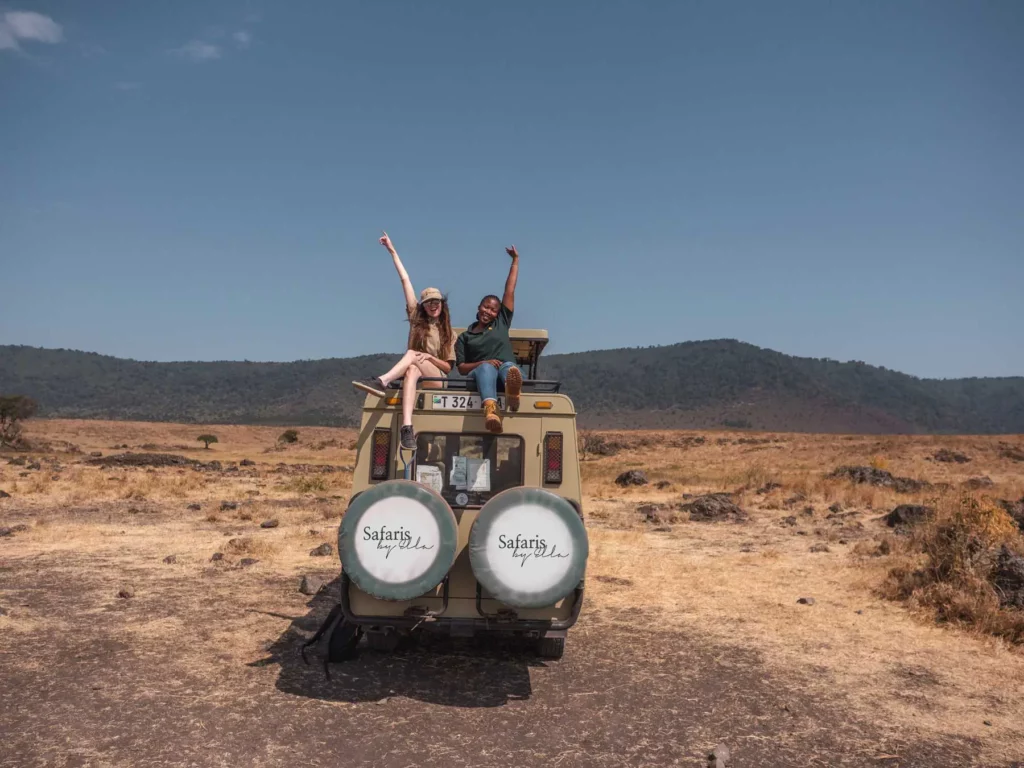
For many people, going on safari is a once in a lifetime experience and, although it’s far from the cheapest type of holiday, the experience and the memories will stay with you for a lifetime.
In order to make this the ultimate guide, I’ve read through everything I could find on the topic of safari costs, spoken extensively to the local guides I’ve worked with in Tanzania and analysed all the costs from my own trips.
My goal with this guide is that after reading it, you’ll have a better idea of how to plan your dream Tanzania safari itinerary as well as getting the most bang for your buck, no matter what your budget is.
I’ll talk you through typical costs, how to choose the best safari company and how much to budget for other costs such as tipping.
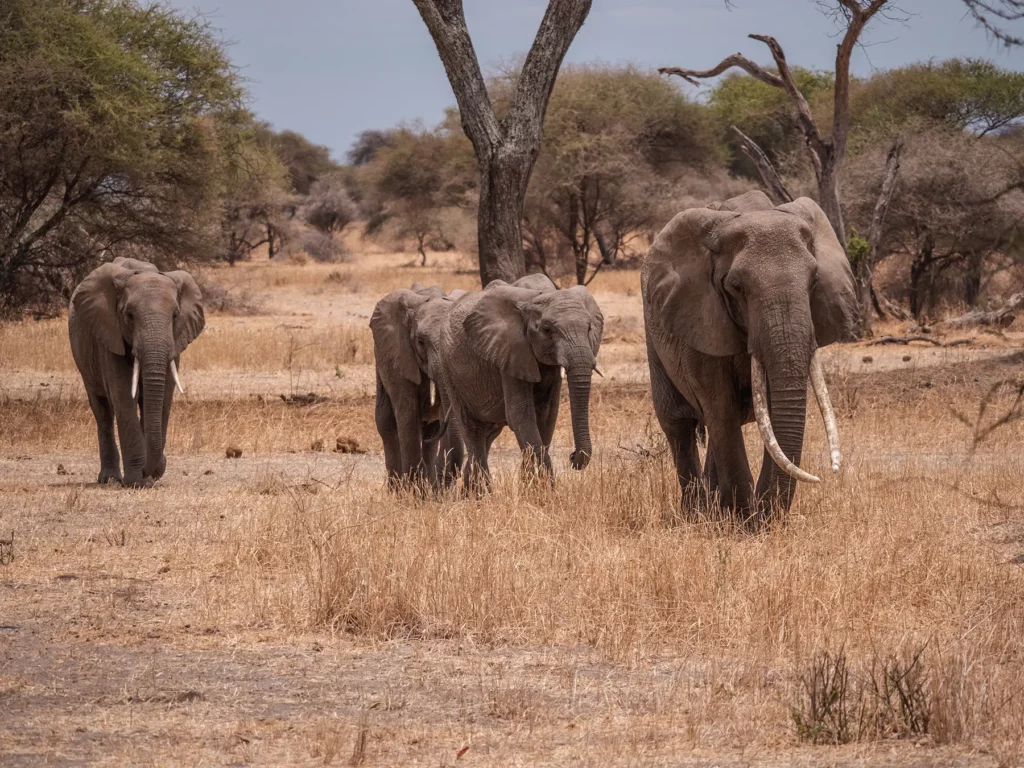
Tanzania Safari Costs At a Glance
If you’re in a rush, here is a quick chart showing the typical costs of Tanzania safaris when working with a local safari company. For larger international travel agents and safari companies based in the US / UK etc. you can add 30 – 300% on to these prices.
Private budget safari starts at around $350 per day with mid-range at $450 and luxury at $600+. It’s also possible to find shared (group) camping safaris from $250 per person per day.
Whilst many factors effect the cost per day, the total trip cost is largely influenced by how many days you are on safari for. I would recommend a 5 day Tanzania itinerary as a starting point and then increasing the numbers of days according to your budget.
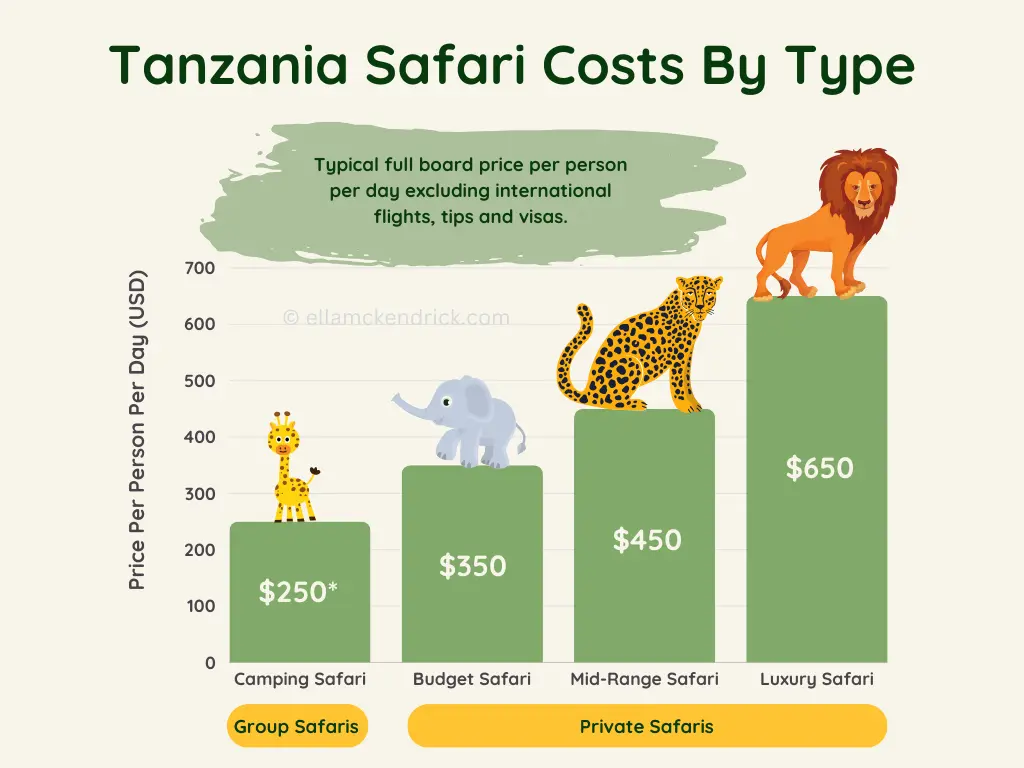
*Whilst you can find group (shared) camping safaris for as little $190 per person the experience is not usually great, due to cost-cutting by the tour company, so I’ve shown $250 as this is the price at which they provide a great experience.
We’ll dive further into these figures in a minute to better understand what makes up these costs and how to get the best value for money.
The best value-for-money safaris are achieved by working with an up-and-coming local supplier.
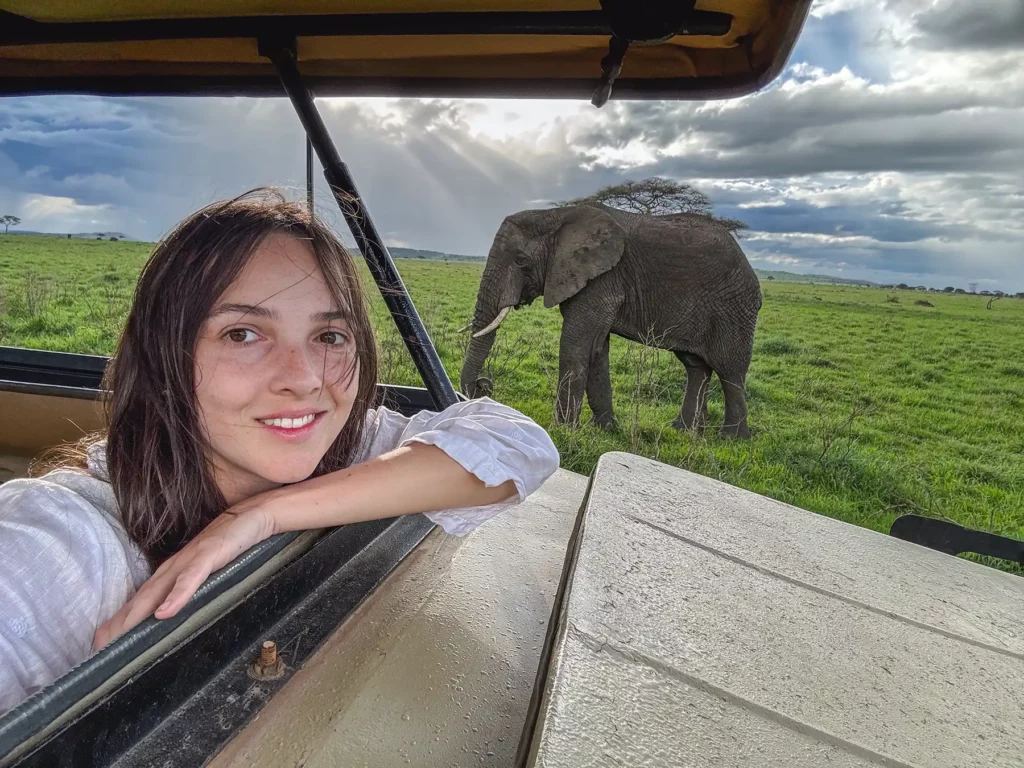
Embark on the Safari of Your Dreams
Save time and ensure an incredible safari experience by getting quotes from my recommended local safari companies
I’m here to make booking your perfect safari quick, easy and risk-free.
Join the rapidly growing tribe of over 1,000 travellers who’ve booked their dream safari using my insider tips and recommendations.

It takes under 60 seconds to fill out the form and in under 48 hours you will receive multiple, no-obligation proposals from my favourite local tour operators with glowing online reviews.
Get your free no-obligation safari quotes and my top safari tips and recommendations
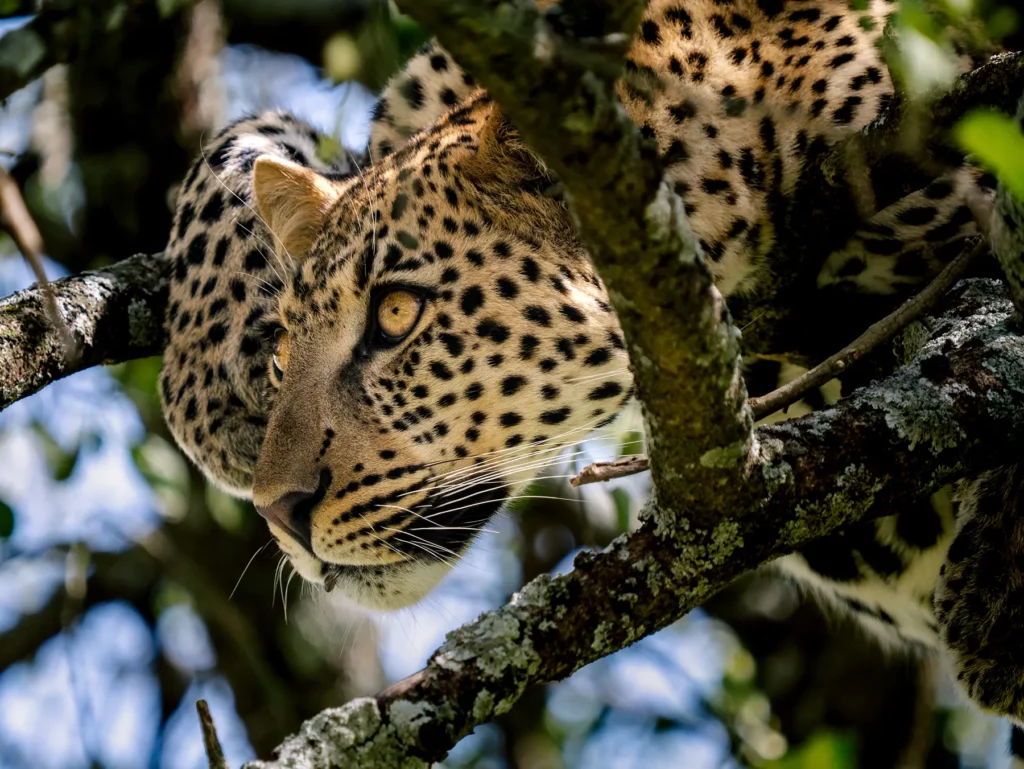
Table of Contents
- Tanzania Safari Costs At a Glance
- How Much Will Your Tanzania Safari Cost?
- Factors Affecting Your Tanzania Safari Cost
- Northern Circuit Vs Southern Circuit Safari Costs
- How do Tanzania Safari Costs Compare with Other African Safaris?
- Cultural Experience Tours Costs
- Special Interest Safari Costs
- Kilimanjaro Hiking Costs
- Other Safari Costs
- How Much Cash To Take
- Final Thoughts
How Much Will Your Tanzania Safari Cost?
The first thing I have to say on the topic of Tanzania safari costs is that Tanzania is definitely not the cheapest place in Africa to go on safari!
Tanzania is, however, arguably the best place in the world to go on Safari. Due to the higher costs, the parks are not packed so you get a much better viewing experience. Tanzania also features some of the very best safari parks in the world such as the Serengeti.
To put things in perspective, The Serengeti National Park has one of the highest densities of predators of any park and is absolutely huge – 30,000 square kilometres. That’s 20x the size of the Masai Mara National Reserve in Kenya, which it joins in the north at 1,510 square kilometres.
With that said, whilst you can spend as much as $15,000 per night in the Serengeti’s most luxurious hotel villas, you can have a fantastic safari in Tanzania from as little as $250-$350 per person per night excluding international flights, visas, tips.
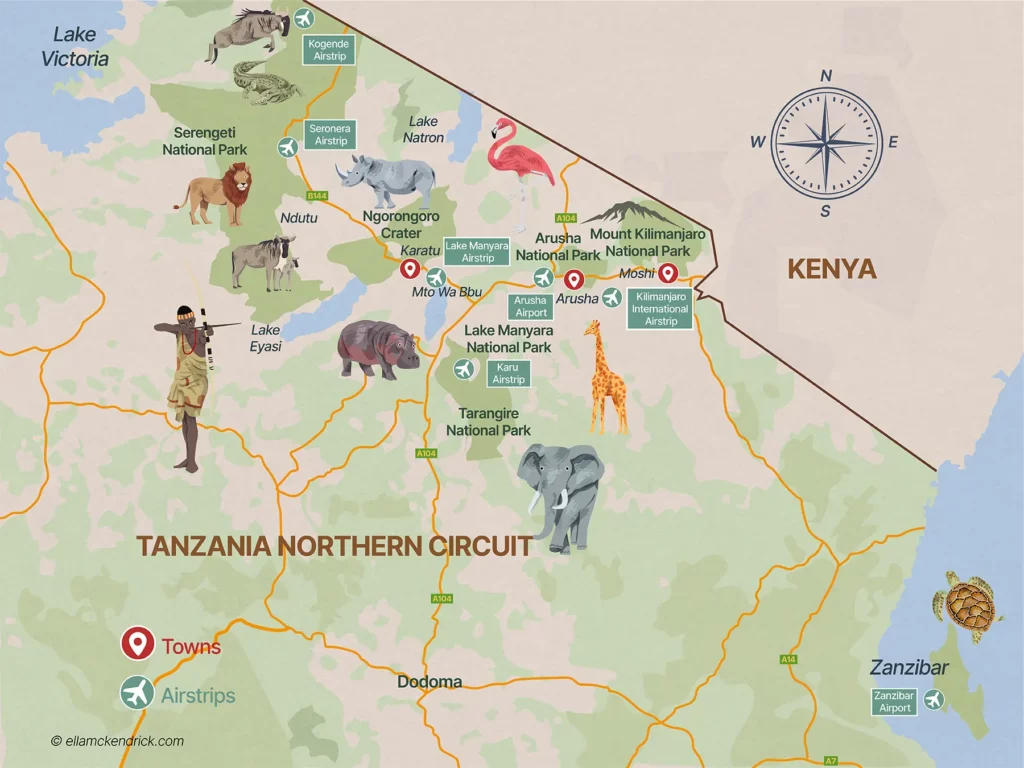
Below I’ll give you some guideline figures for a typical safari in 2024/25.
I’ve broken the figures down for each safari type (budget, mid-range and luxury) by each booking method (self driving ‘DIY’ safari, local safari company and international travel agent / safari company).
You can jump to the sections using the links below here:
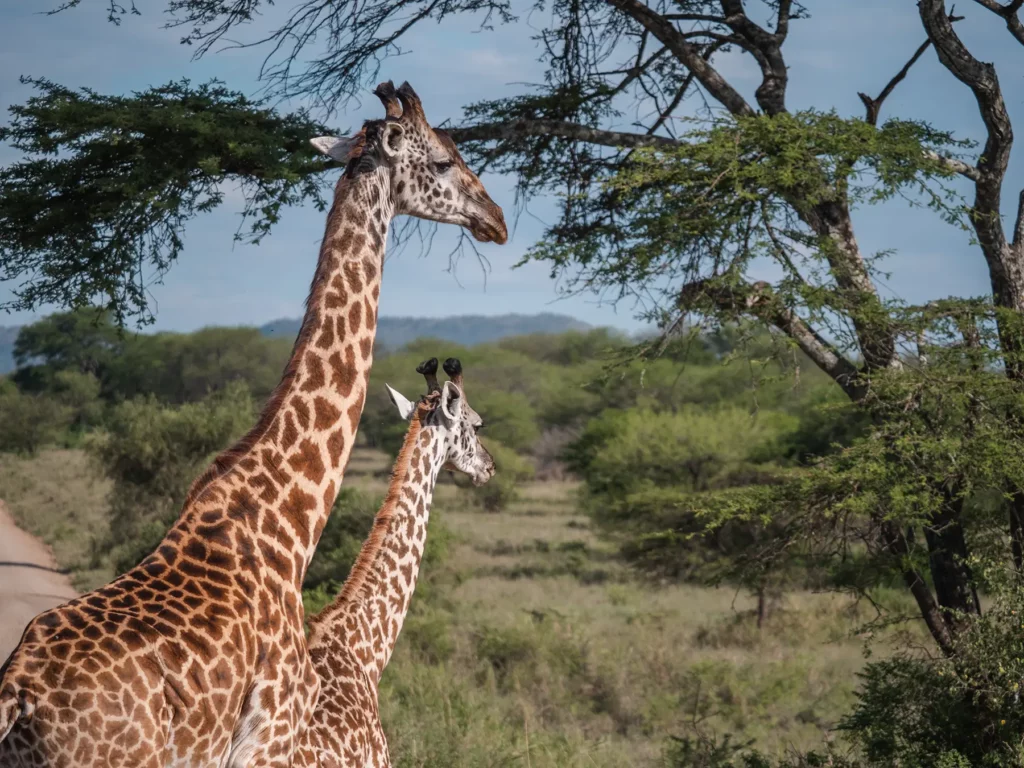
Budget Tanzania Safari Costs
A budget safari is an entry level safari – it’s the lowest cost way to experience a traditional safari where you travel around in a safari truck and view animals in the national parks.
Whilst most budget safaris are private, you can sometimes find scheduled group safaris where you share the safari truck with other people – this can provide a saving especially for solo travellers. However, they usually involve very basic camping accommodation and you have to follow a fixed itinerary of 3 or 6 days, which is why I prefer the flexibility and comfort of private safaris.
If you’re looking for something even cheaper, see my section: Can I go on a safari for even less cost than a budget safari?
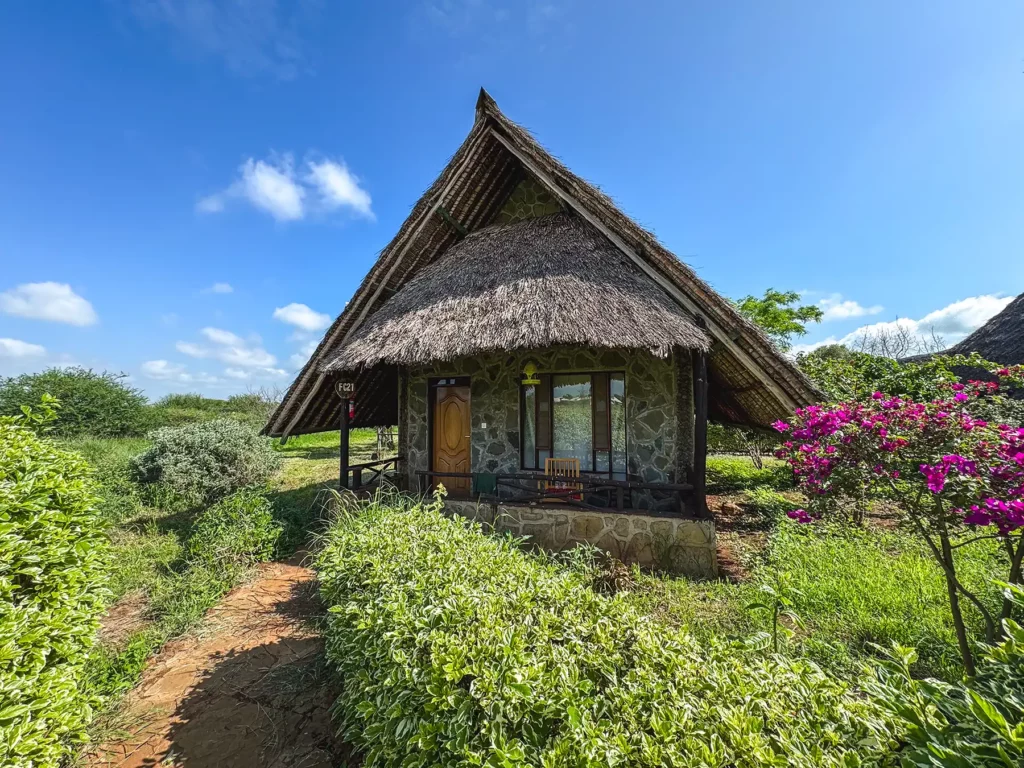
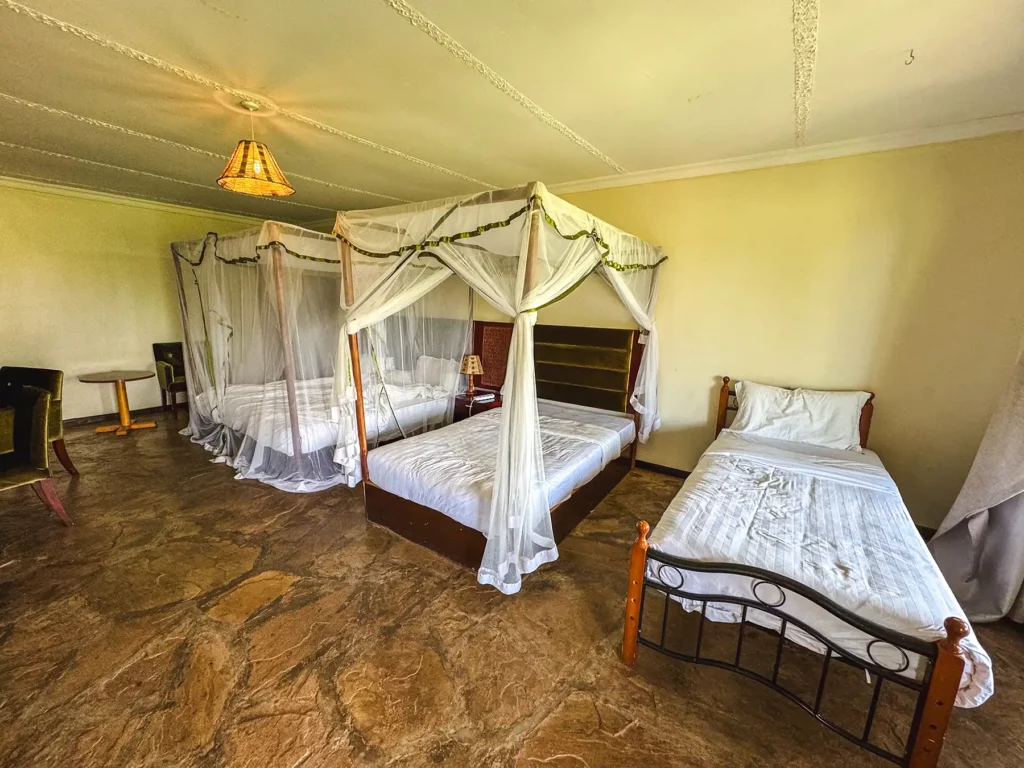
What’s the difference with a budget safari: The main difference with a budget safari is the accommodation type. The costs of budget safari are brought down by using lower-cost accommodation such as smaller rooms or tents and these will typically be outside of the national parks.
Whilst the example prices I have given, assume you are visiting the best national parks, In some cases budget safaris might visit national parks with lower entrance fees or use less experienced and thus cheaper guides. Budget safaris might also include some walking safaris which cost less in park fees vs vehicle safaris.
You will probably drive everywhere as internal flights are expensive. You may get a ferry to Zanzibar rather than flying if that’s included in your trip.
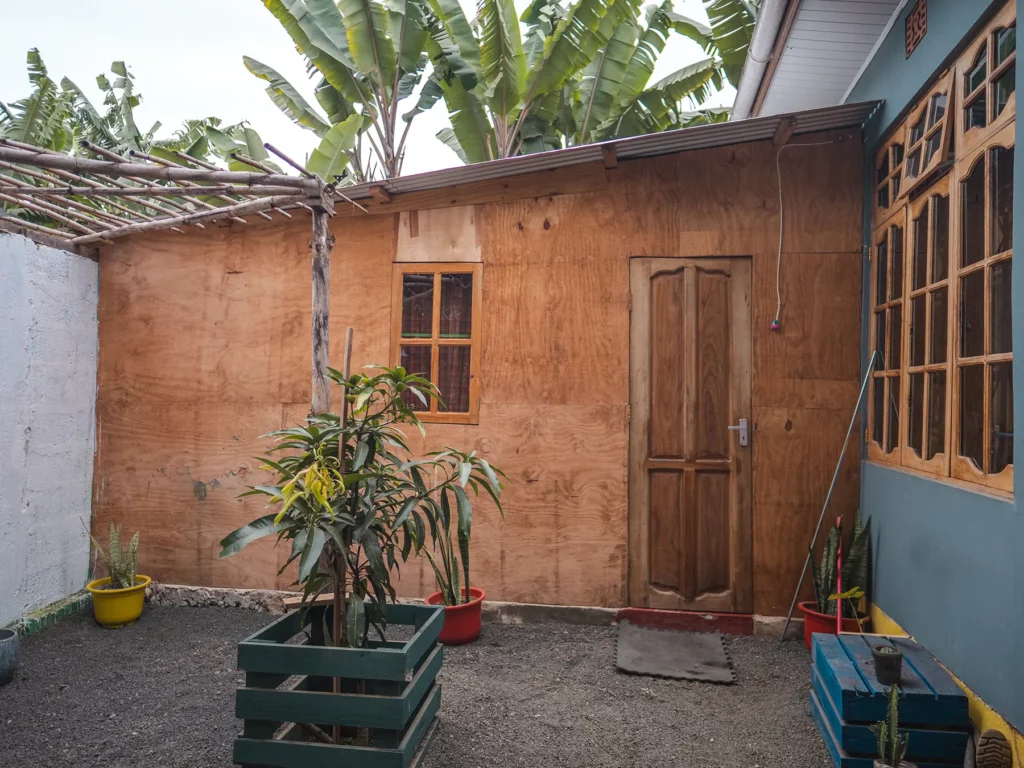
What’s the same with a budget safari: Your safari truck will be similar although might be slightly older, you will still have a driver / guide.
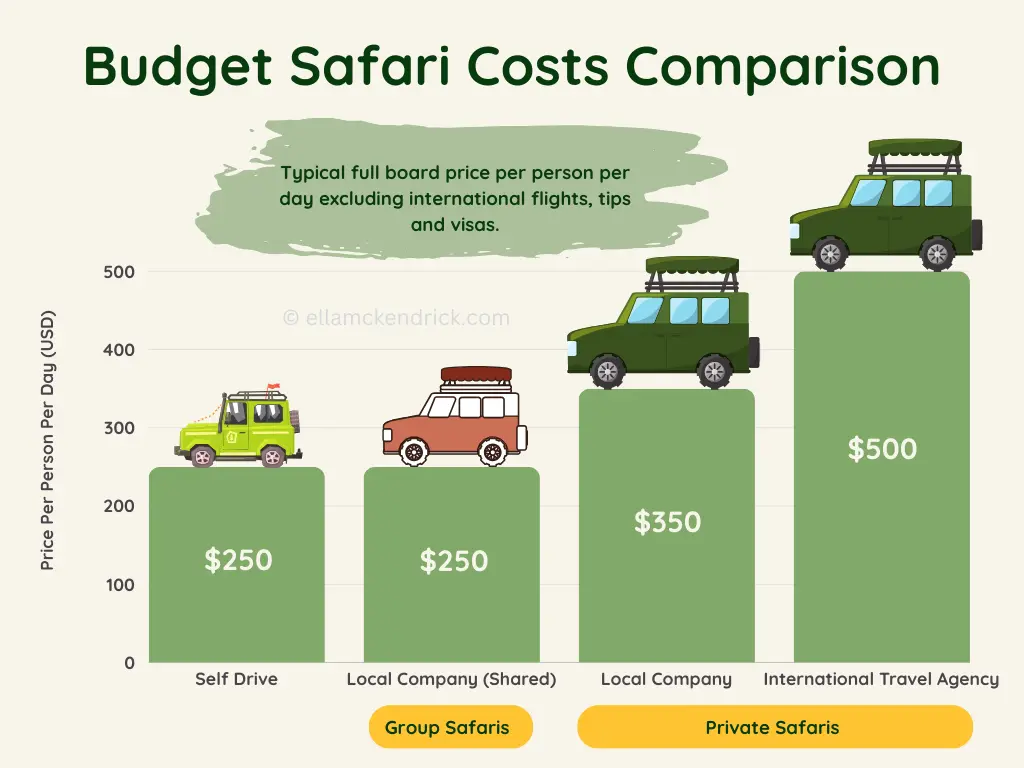
Notes on the budget safari costs
- You can save around 12-27% if you choose a shared (group) safari package where you share the truck with strangers. However, accommodation is usually basic tents and they have fixed 3 and 6 day itineraries and depart at scheduled times. On a like-for-like accommodation basis the savings are around 12%.
- The private self-drive option is cheaper than the private local supplier safari because you’re saving on the driver/guide. However, since you’re paying a lot of money anyway you might as well pay a little bit extra for a driver guide to make sure you have the best sightings as well as a more relaxing experience. See my section on DIY safari for more on this topic and why I wouldn’t self drive in Tanzania.
- The international travel agent / safari company price is higher than the local safari company because you’re paying for their overheads and profit on top of the local company who does the safari.
Recommended Booking Options For Budget Tanzania Safaris
Private Safari
Most popular & best experience – typical prices for this itinerary start from $300 per person per day.
Visit safarisbyella.com for free quotes from trustworthy local tour companies I use to book my own trips.
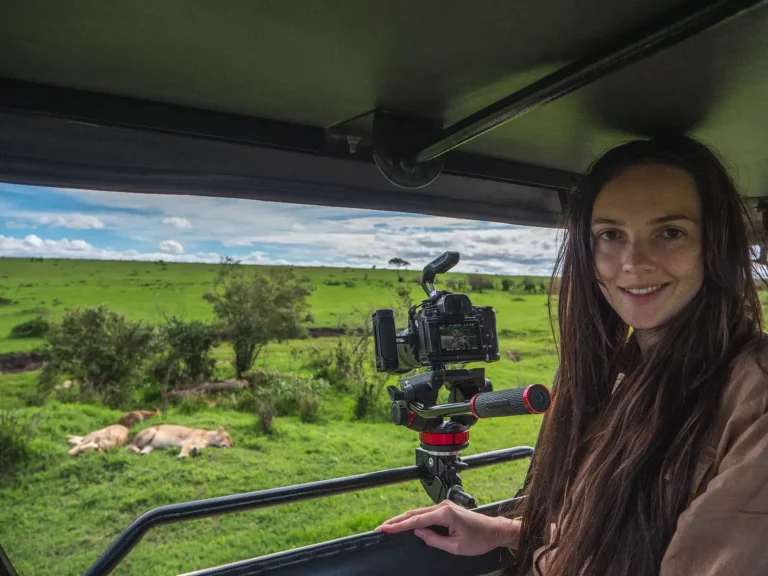
Group (Shared) Safari – Usually Camping
Good for budget or solo travellers – from $180 per person per day.
My recommended Tanzania tour operators only provide private safaris, however, I’ve listed the best and most similar group options for this itinerary, on SafariBookings below.
Click the link below to request quotes for the group safari options on the SafariBookings website.
5-Day Tanzania Group Budget Camping Safari
8-Day Tanzania Group Budget Safari Including Zanzibar
Mid-Range Tanzania Safari Costs
A mid-range safari is the most popular type of safari as it gives you a very comfortable experience and great value for money without the very high costs of a luxury safari.
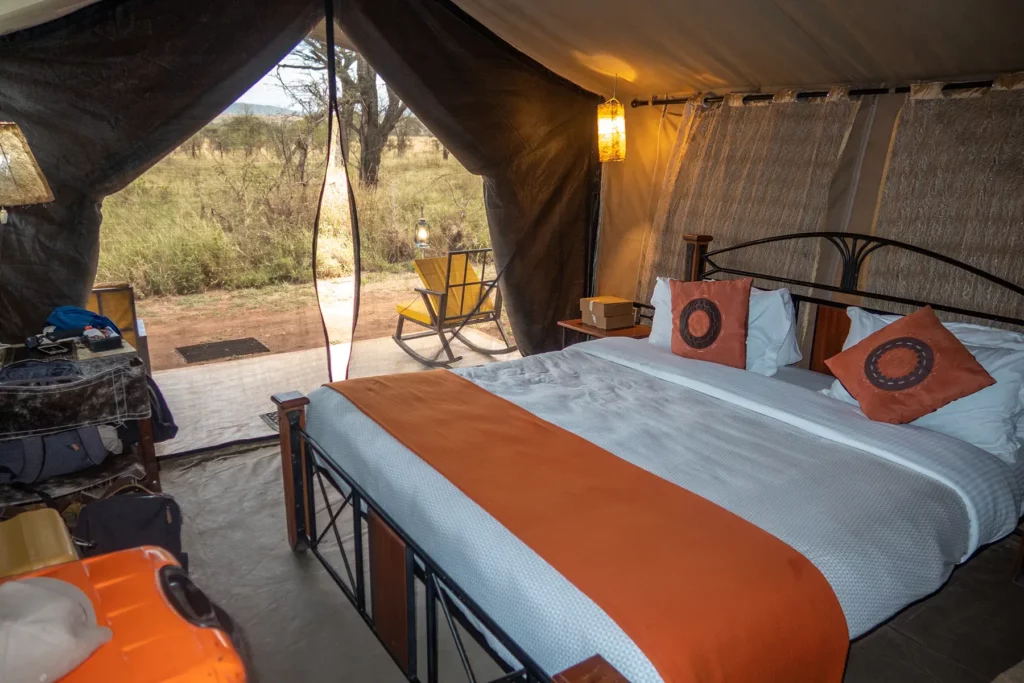
What’s the difference with a mid-range safari: The main difference with a mid-range safari is the accommodation. You will be well looked after in very comfortable accommodation, usually in lodges. Inside the national parks you will be in luxury permanent tented camps with showers and traditional beds. More on mid-range accommodation.
You’ll visit the very best parks, such as Ngorongoro Crater and Serengeti.
Unlike the budget safari you might have an internal flight such as from the Serengeti to Zanzibar if your safari includes Zanzibar.
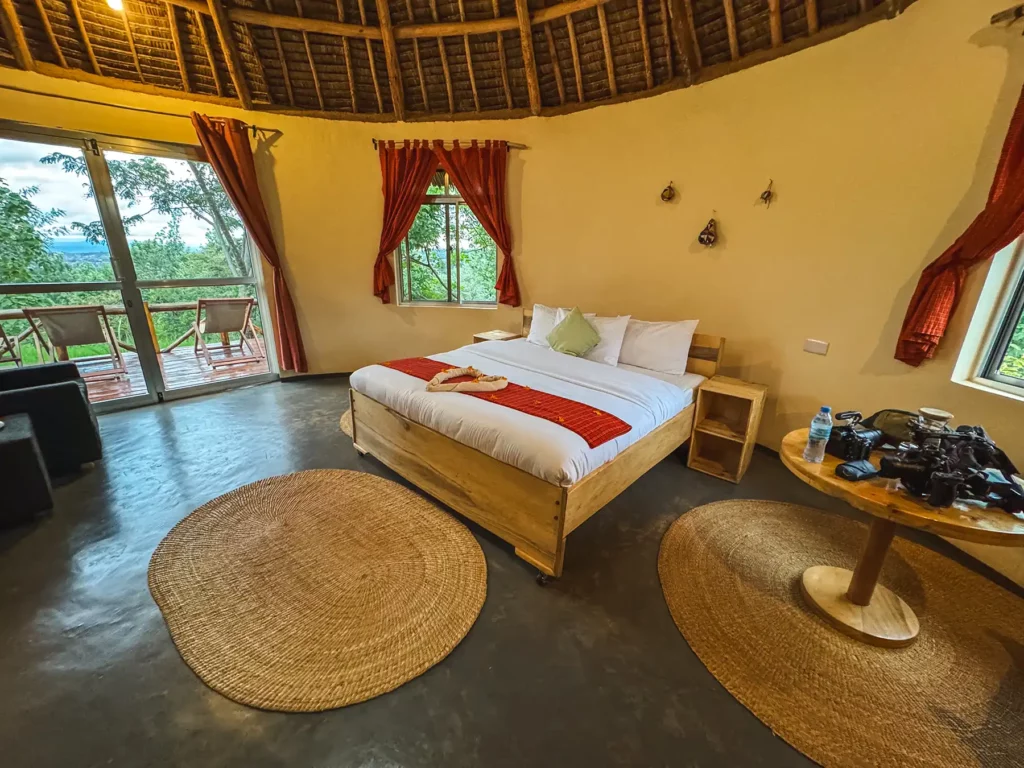
What’s the same with a mid-range safari: Your safari truck will be similar although might be newer with high spec such as phone chargers and drinks cooler. You may be allocated a more experienced guide.
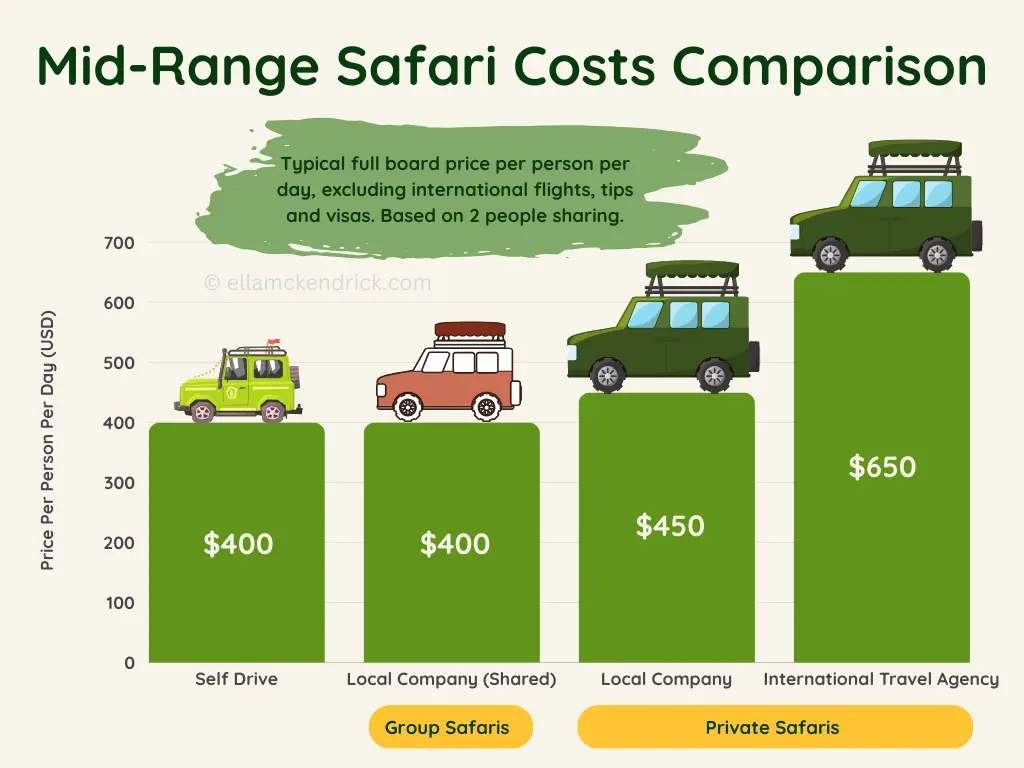
Notes on mid-range safari costs
- The self drive option is cheaper than the local supplier because you’re saving on the driver/guide. However, since you’re paying a lot of money anyway you might as well pay a little bit extra for a driver guide to make sure you have the best sightings as well as a more relaxing experience. See my section on DIY safari for more on this topic and why I wouldn’t self drive in Tanzania.
- The international travel agent / safari company price is higher than the local safari company because you’re paying for their overheads and profit on top of the local company who does the safari.
Recommended Booking Options For Mid-Range Tanzania Safaris
Private Safari
Most popular & best experience – typical prices for this itinerary start from $400 per person per day.
Visit safarisbyella.com for free quotes from trustworthy local tour companies I use to book my own trips.

Luxury Tanzania Safari Costs
Luxury can be further split into Luxury and Luxury +. Luxury being from $650 per night and Luxury + being from $1,500 per night.
With Luxury safaris you are getting the best of everything.
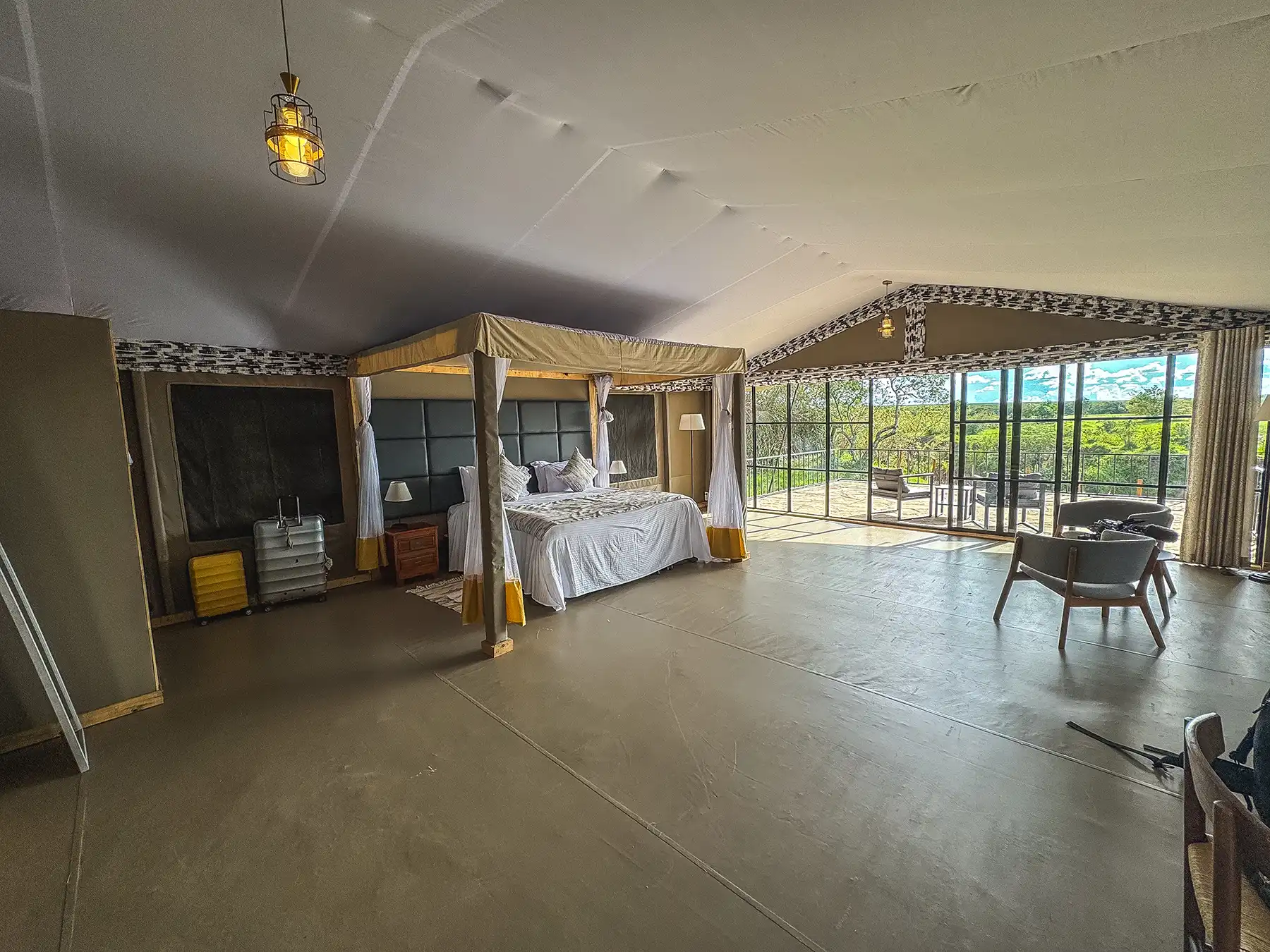
With luxury Tanzania safaris, longer drives may be replaced with 45 minute flights on small safari planes such as the one I’m boarding below.
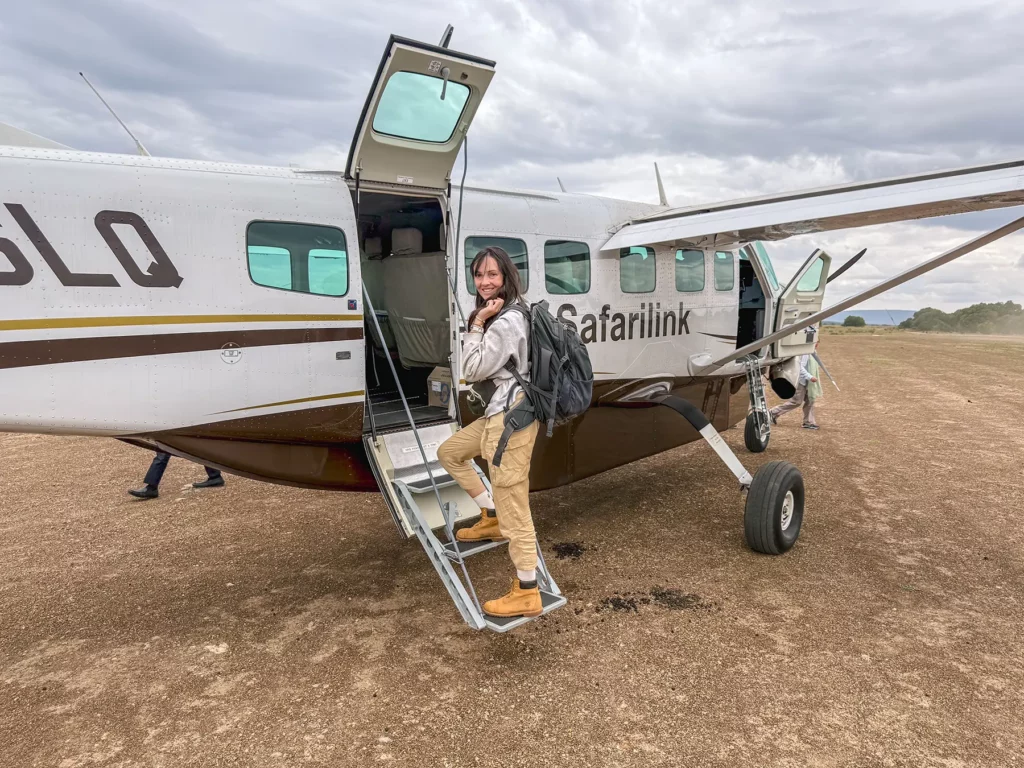
What’s the difference with a Luxury safari: The main difference with a luxury safari is the accommodation and methods of transport. You will be staying in the very best accommodation Tanzania has to offer with larger rooms and suites and exceptional features such as infinity swimming pools in the Serengeti.
With luxury safari you may well replace longer drives such as from Arusha to Central or Northern Serengeti with internal flights which can add around $350 per person per flight one-way.
You will visit the very best national parks such as Serengeti and Ngorongoro. You will also have the option of the best national parks in the South which require a higher budget to reach such as Selous National Park.
You will often be allocated a newer and higher spec truck with phone chargers, plug sockets and drinks cooler.
You will be allocated the very best and most experienced guides.
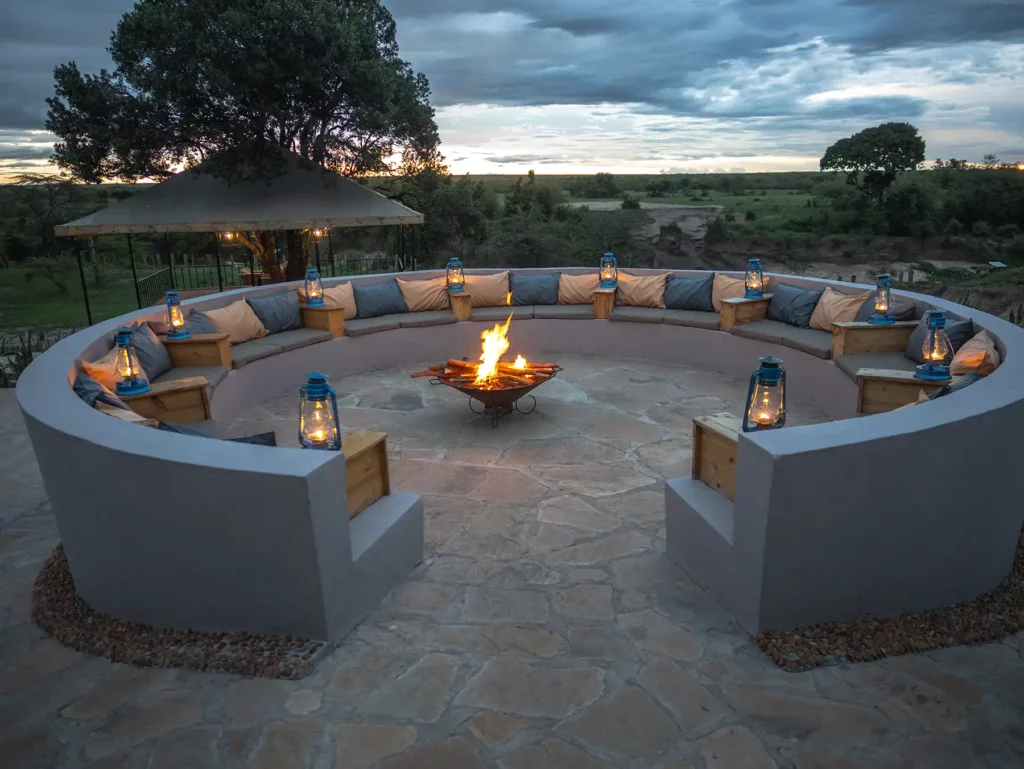
What’s the same with a Luxury safari: Your safari truck will be similar but higher spec.

Notes on luxury safari costs
- The self drive option is cheaper than the local supplier because you’re saving on the driver/guide. However, since you’re paying a lot of money anyway you might as well pay a little bit extra for a driver guide to make sure you have the best sightings as well as a more relaxing experience. See my section on DIY safari for more on this topic and why I wouldn’t self drive in Tanzania.
- The international travel agent / safari company price is higher than the local safari company because you’re paying for their overheads and profit on top of the local company who does the safari. Luxury safaris is where the international companies really make most of their money so they will have a bigger differential on this level as often the people spending this much money are not very price sensitive and may perceive higher price to equal higher value.
Recommended Booking Options For Luxury Tanzania Safaris
Private Safari
Most popular & best experience – typical prices for this itinerary start from $600 per person per day.
Visit safarisbyella.com for free quotes from trustworthy local tour companies I use to book my own trips.

Can I Go On A Safari For Even Less Cost Than A Budget Safari?
In some African countries you have an even cheaper option called overlanding where you join a large group of travellers in an off road bus, but this isn’t really an option in Tanzania. There’s also the concern that game viewing will be poorer as you don’t have the room to move around the vehicle to view different sightings.
You could hypothetically hitch-hike or catch minibuses from park to park and then arrange walking safaris at the parks which allow this. The mini-buses however, are often involved in crashes (a friend of our guide lost his leg whilst travelling in one of these mini buses while I was in Tanzania) so they really are the transport of last resort! I would suggest if the cost for a safari is out of your budget that there are much better countries to visit.
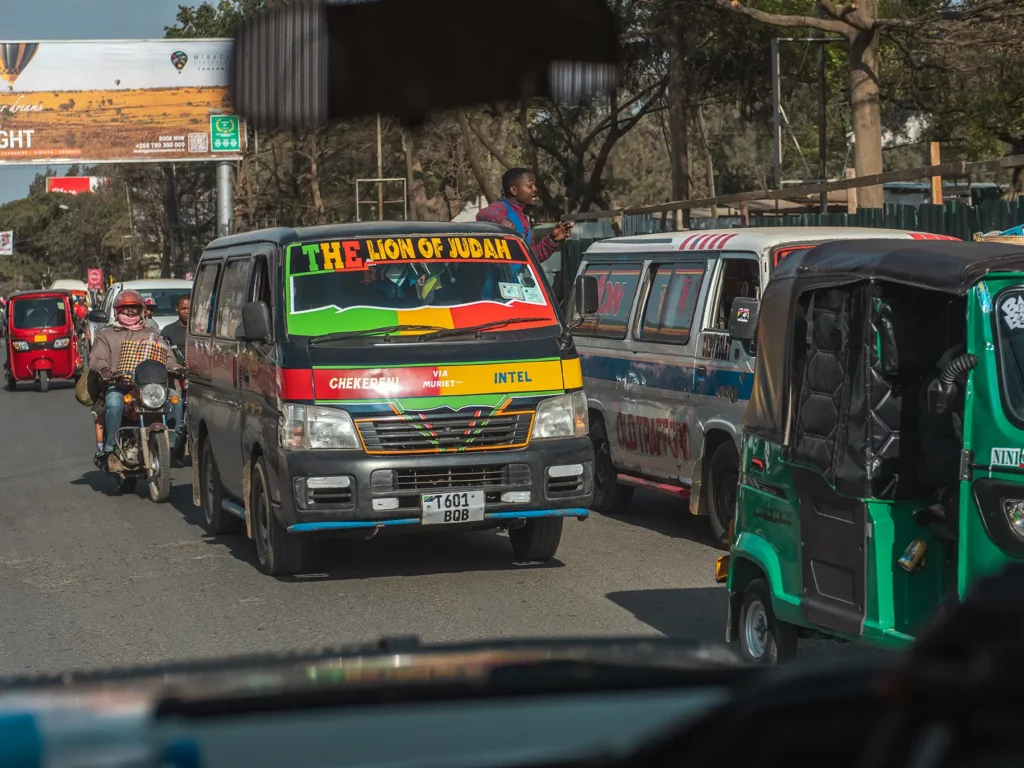
Factors Affecting Your Tanzania Safari Cost
Below are the factors in order of which will have the biggest impact on your safari cost.
*It’s worth noting that If you’re a solo traveler going on a private safari, group size would move up to position 2 or 3 (depending on accommodation level) as you’re shouldering all of the fixed costs such as the vehicle and driver / guide so this becomes a bigger cost factor compared to parties of 2 or more.
1. Type of Safari Company
There are four ways you can arrange a Tanzania safari Itinerary: self drive (DIY), hotel provided safaris, local safari company and international safari company (located in US, UK etc).
I’ll go into each of these options below and their effect on costs.
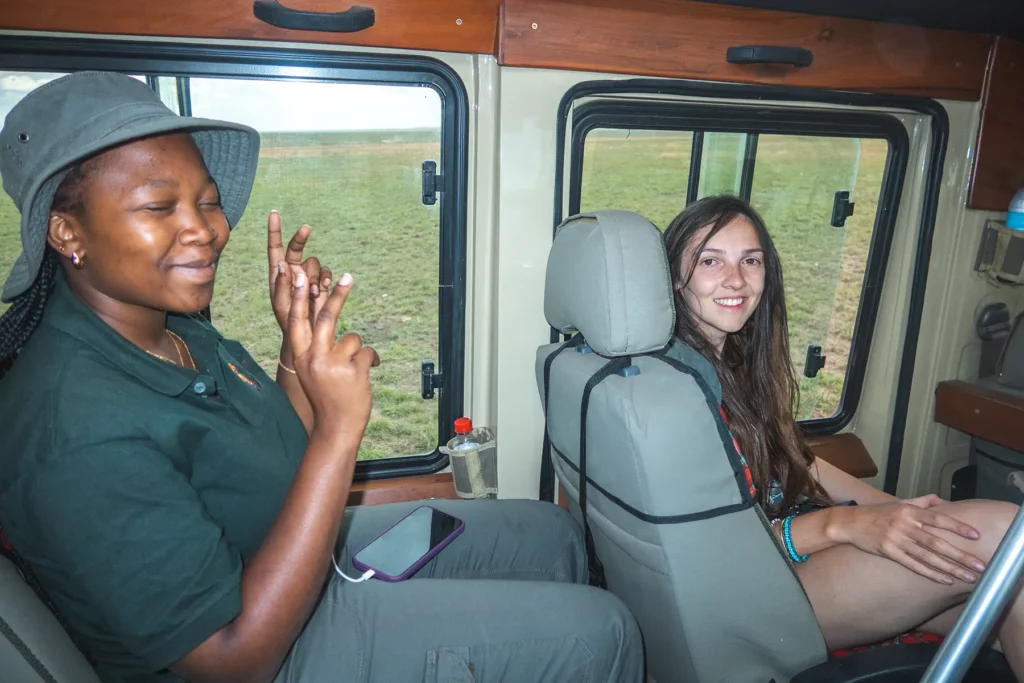
Self Drive (DIY) Costs
If you’re on a budget, or you’re a DIY sort of guy/gal you might be considering a DIY-style self drive safari.
Although self-driving can be a cost-effective choice in certain African nations like Namibia, Botswana, and South Africa, it is not ideal for Tanzania.
In 2017, I embarked on a self-drive adventure across Namibia, which I thoroughly enjoyed. However, I would not choose to go on a self-drive safari in Tanzania, let me explain why with a quick story:
During my stay at a lodge located on the edge of the Ngorongoro Crater, I had the pleasure of meeting a delightful German couple who had rented a 4×4 vehicle for a self-driving expedition in Tanzania.
Unfortunately, they had just found out that the National Parks only permit specialised safari trucks to enter the park, and therefore their 4×4 would not be allowed.
As a result, the couple had to quickly organise a safari with a separate tour company, which meant they had to pay for both the self-drive car and the safari company.
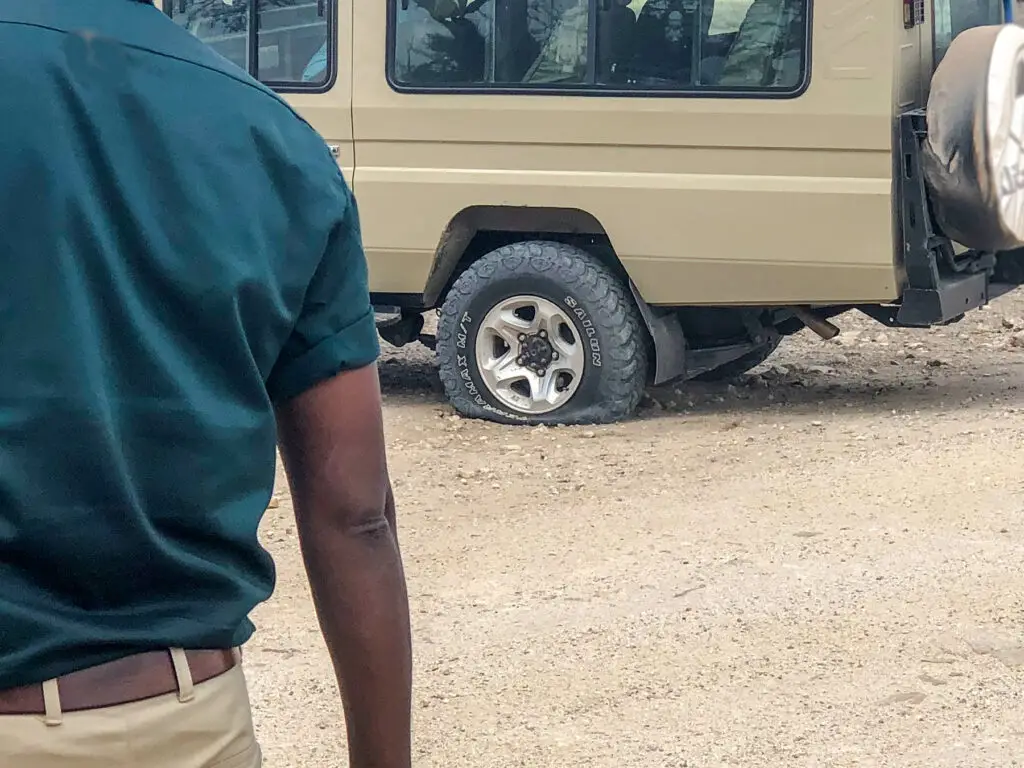
Whilst it is possible to hire self-drive specialist safari trucks from local safari companies, there isn’t much of a saving for groups of 2-3+ (since the cost of the driver/guide is split between the members of the group) if any vs using a safari company to provide you with a truck and guide together.
It’s worth noting that you might save a little bit on the markup from a local safari company but then again this saving will probably be offset by the following factors:
- Your lack of experience means you’ll probably overpay for certain elements
- Local safari companies tend to get special trade prices on most elements of the trip which means their margin usually gets covered by the difference between trade and retail prices meaning you don’t actually pay them anything for their services organising the trip.
Tanzania is very much geared towards using safari companies who organise everything for you including a safari truck and / driver (usually they are the same person). This makes it slightly more expensive but in my opinion this is a small price to pay for some of the best safariing on earth.
By having an experienced guide, you can view much more wildlife as opposed to attempting to track it down independently!
The way I saw it was, after paying for flights, accommodation, park fees etc, why would I want to miss out on all the amazing wildlife sightings a good guide can offer, just to save a few dollars by driving myself?
The below chart gives you a rough idea of where your money goes when you opt for DIY self drive Tanzania safari.
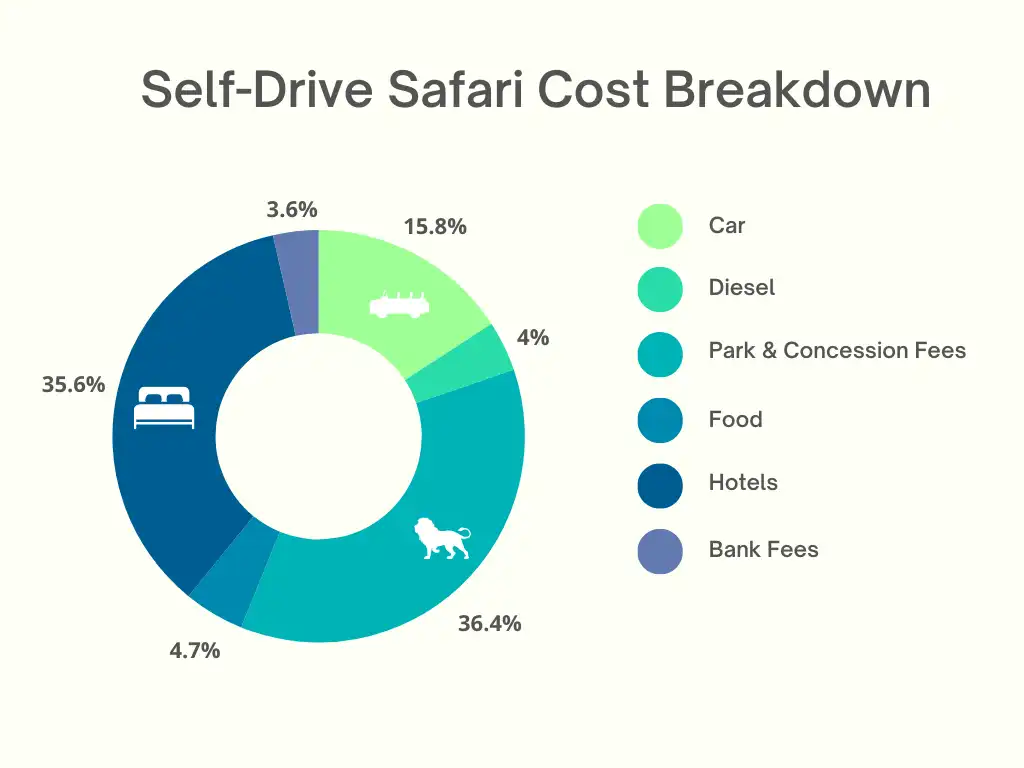
How to Book a DIY Self-Drive Tanzania Safari
- Option 1: Comparison sites which provide multiple quotes from verified suppliers such as Safaris By Ella. Make sure to write you want to self drive in the notes when requesting a quote. (This is a hybrid approach where you’ll drive yourself but they will arrange everything)
- Option 2: Research and book all elements of the trip yourself using Google and online travel agents.
Join the rapidly growing tribe of over 1,000 travellers who’ve booked their dream safari using my insider tips and recommendations. Get your free quotes and my top tips and recommendations now.
Local Tanzania Safari Company Costs
A good local safari company will provide the best value for money in my experience. They will also save you a lot of time and use their local knowledge to organise the best safari based on your requirements.
I tend to use smaller up-and-coming local companies as I discovered that some of the most popular local companies had become victims of their own success and had started to hire sub-standard trucks (we saw quite a few broken down) to keep up with demand and hire inexperienced guides.
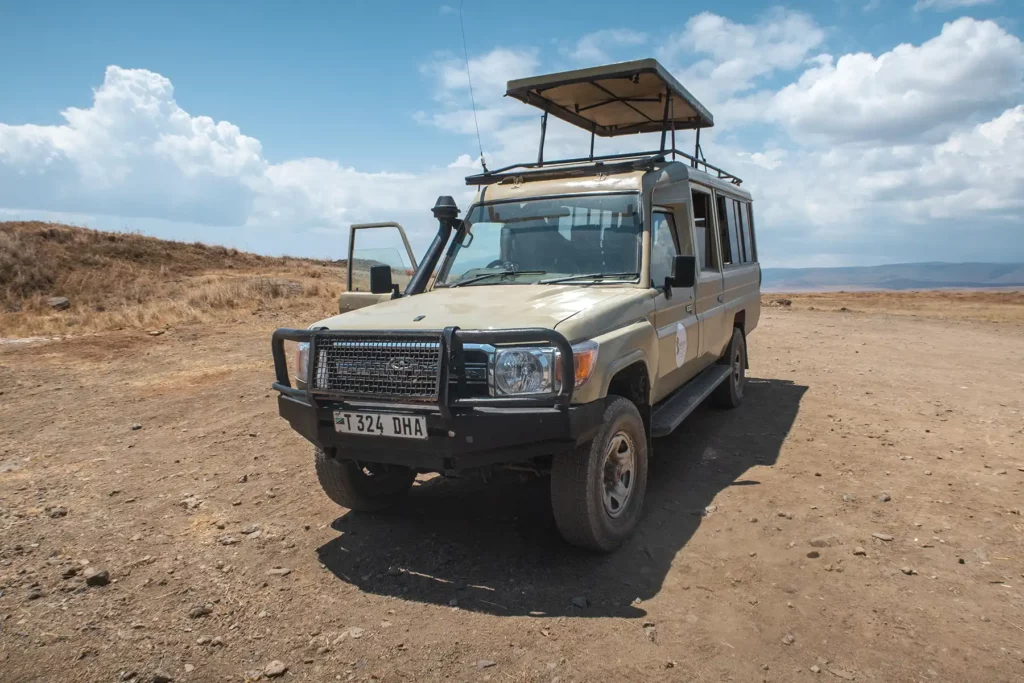
I find that smaller up-and-coming companies tend to offer a consistently high level of service as well as higher specification trucks and experienced guides.
Due to their low overheads, many small local suppliers only include a small 10-15% margin in their quotes which goes towards their wages and limited business overheads leaving them with 3-5% profit.
In the case of accommodation for example, local suppliers usually receive special trade prices which means that they take their small margin from the accommodation provider and not from the customer which makes it very cost effective to work with a local supplier. In some cases I found them to be cheaper than arranging everything independently and sooo much less hassle!
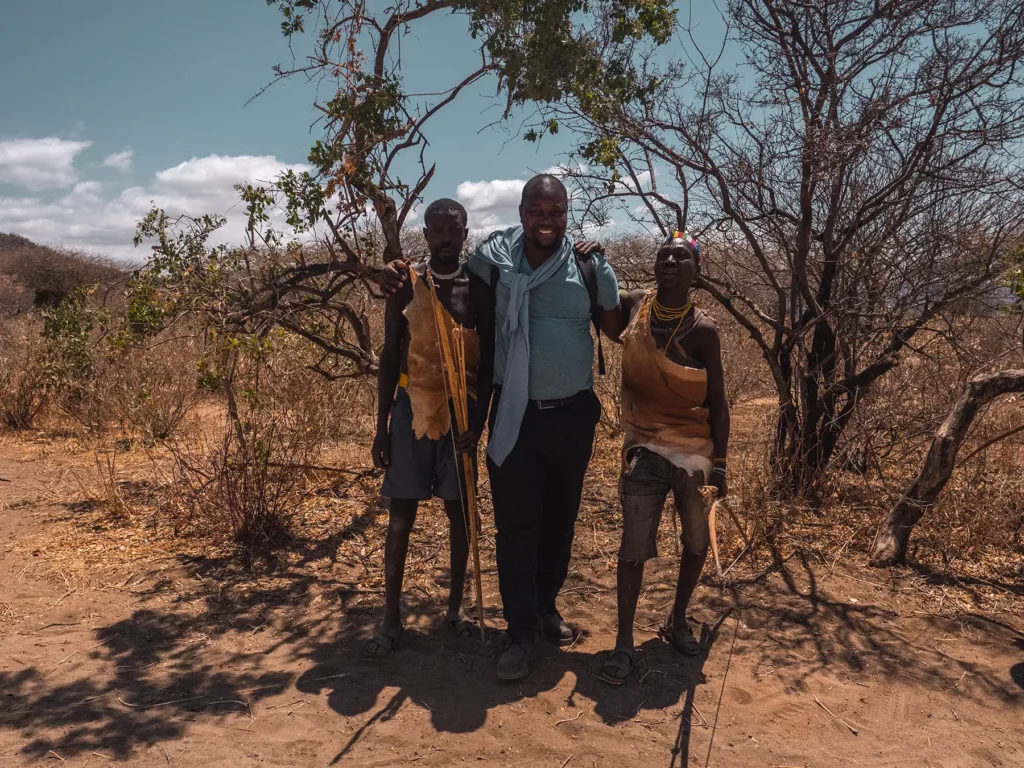
The below chart gives you a rough idea of where your money goes when you book your safari with a local safari company
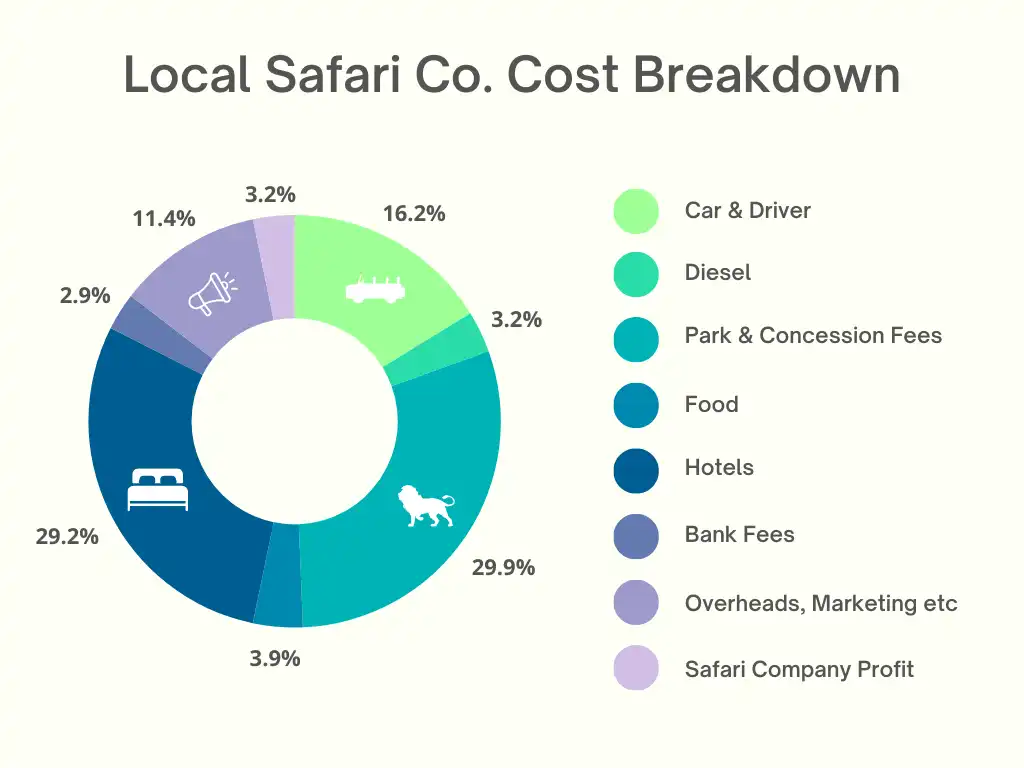
As you can see accommodation and park fees make up over 50% of the total safari costs when working with a local supplier. Park fees go towards the upkeep of the parks. Only around 3% goes to the safari company as profit after their overheads.
The above chart is based on a mid-range safari. With budget safaris accommodation costs will make up slightly less of the total and with luxury safari packages, accommodation costs can make up as much as 50% or more of the total costs.
How to Book with the Best Local Safari Companies
- Comparison sites which provide multiple quotes from verified suppliers such as Safaris By Ella
Join the rapidly growing tribe of over 1,000 travellers who’ve booked their dream safari using my insider tips and recommendations.
International travel agent / safari company (US, UK etc.)
From my research and chatting to local guides I found out that International travel agents and safari companies in the US, UK etc, subcontract their safaris out to local safari companies who apply their own logo to the truck.
Using a safari company based in your country is a more expensive option as you are now paying for their overheads (offices, staff, marketing etc.) and profits as well as the overheads and profits of the local safari company.
Based on my research, like-for-like safari costs are usually 20 – 300% more expensive when booked through a US / UK travel agents / safari company.
Sometimes there can be communication issues as you give your sales rep your preferences who then passes them on to the local Tanzania company who then has to pass them on to the driver / guide.
International Safari companies in the US / UK etc. do of course provide some benefits. They can book international flights for you. They are also more experienced with high-end requests such as chartering private jets.
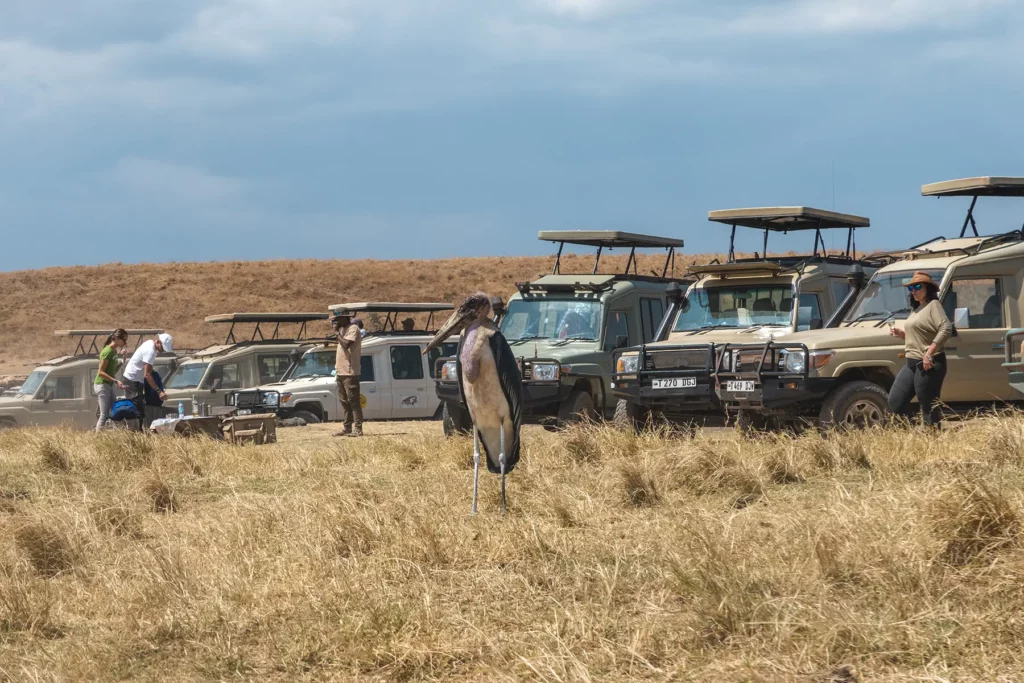
Typically overseas travel agents who specialise in safaris tend to cater to the higher end. From my experience, you typically have to be spending 15,000 USD plus to get their attention and you really need to be spending 50,000 USD + to get their full attention and service. Costs can easily reach $100,000’s.
In the UK you will be covered by Package Travel Regulations which can provide some assistance if they go bust before your trip. If they book international flights as part of your package, you will be covered by the ATOL scheme.
In America there are schemes such as the Airline Passenger Protection Act and the Federal Aviation Administration’s consumer protection rules which apply when booking through a local travel agent in the US.
It’s worth noting however, that it appears to be possible to protect against these risks yourself when booking directly with local suppliers.
My tips would be using your credit or debit card to make payment for the deposit as these typically offer purchase protection (In the UK it’s called Section 75) and purchasing good travel insurance with travel interruption protection or similar.
The below chart gives you a rough idea of where your money goes when you opt to book your safari with an international US / UK etc. safari company.

When you compare this to the cost breakdown with a local supplier, you can see that when using an international travel agent / safari company there are now extra costs associated with your safari.
“Safari company overheads and profits” reflects the overheads and profits of the local safari company who will deliver the safari on behalf of the International travel agent/ safari company who sold the safari.
“Travel Agent Overheads & Profit” reflects the overheads and profit of the International travel agent/ safari company which they need to add to the safari costs. In this chart we have added around 25% extra costs to represent the lower-cost international travel agents but in some cases with the very high end suppliers the extra cost can be up to 300%!
How to Book Your Safari with an International Travel Agent / Safari Company
- Comparison sites which provide multiple quotes from verified suppliers such as Safaris By Ella. When you select a luxury budget on the quote request, you will receive a quote from my recommended International safari company as well as my recommended local companies for comparison.
Join the rapidly growing tribe of over 1,000 travellers who’ve booked their dream safari using my insider tips and recommendations.
Hotel Provides Safaris Costs
Some of the luxury+ hotels in Tanzania’s national parks offer their own safari trucks and guides. You will usually have to share these trips with other guests.
This is the most expensive way to arrange a safari but it might be worthwhile considering if you plan to spend most of your time in the hotel with only the occasional safari and don’t mind sharing.
I’ve not provided a breakdown of costs for this option as it’s not applicable.
How to Book a Hotel-Provided Safari
- Option 1: My recommended tour operators on Safaris By Ella can arrange hotels and air or road transport to and from the hotels. If you opt for the more cost-effective road transport, since they have driven you to the hotel, you might find it cheaper to use the safari company for safaris rather than using the hotel-provided safaris.
- Option 2: Check with your chosen accommodation whether they provide this service and the booking requirements.
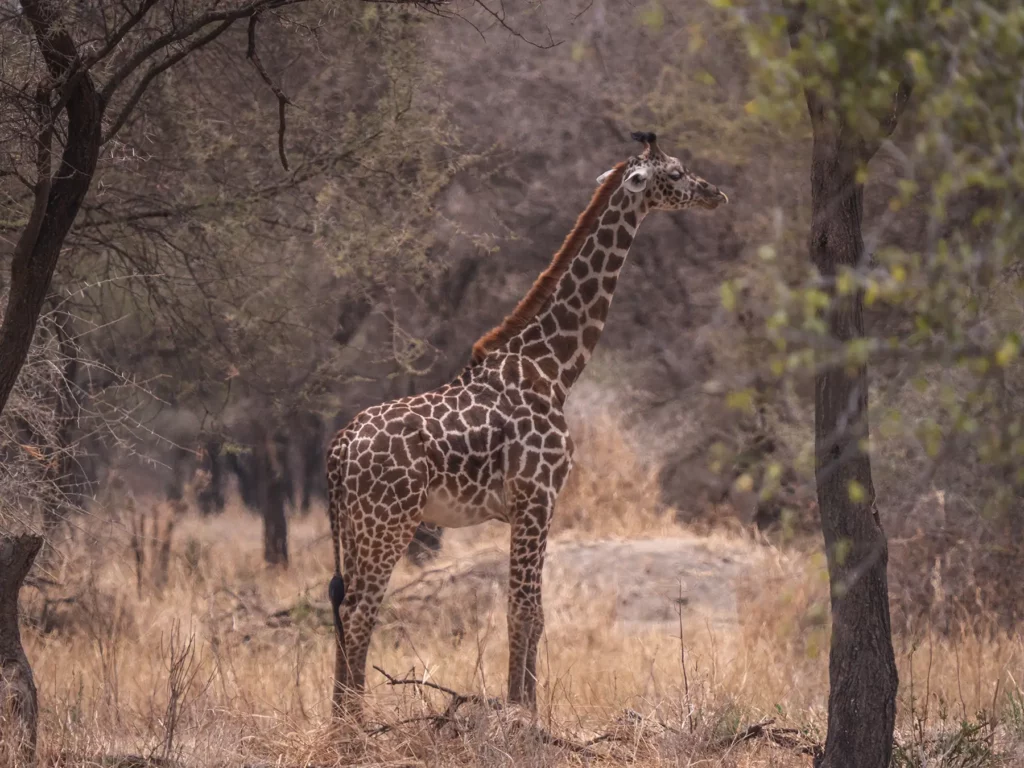
2. Safari Accommodation Costs
The level of accommodation is the single biggest factor which contributes to the price differences between budget, mid-range and luxury safaris.
The cheapest accommodation I’ve seen was $20 per night whereas the most expensive is $15,000 per person per night. This illustrates the range of accommodation costs.
You’ll typically find that accommodation in Tanzania charges a rate per person rather than per room. This is partly because they typically include full board (food and drinks) in the prices.
Accommodation costs are more expensive inside the national parks for two reasons: 1) Parks charge overnight fees for each person and these are added to the room rates. 2) It costs accommodation providers more money to operate in the national parks which they pass on in higher room rates.

Table showing typical prices per person per night including overnight park fees where applicable for different levels of accommodation in different locations on a full board basis in peak season.
| Location | Budget | Mid-Range | Luxury |
| Arusha | $25 | $90 | $180 |
| Karatu | $65 | $150 | $250 |
| Ngorongoro | $180 | $600 | $1,000 |
| Serengeti Central | $200 | $400 | $1,200 |
| Serengeti North | $200 | $416 | $1,200 |
Below I’ll provide details on each level of accommodation. You can jump to the each of the sections using the links below:
Budget Tanzania Accommodation Costs
($20-$100 per person per night)
Budget accommodation includes hostels, camping and pod-style accommodation.
Budget accommodation will usually be located outside of the national parks. This is not a problem apart from in the case of the Serengeti where the distances are so great that it can be a little inconvenient to be located outside the park if you’re planning on going on safari in the Serengeti for multiple days.
Some of the basic campsites only have limited solar-powered electricity.
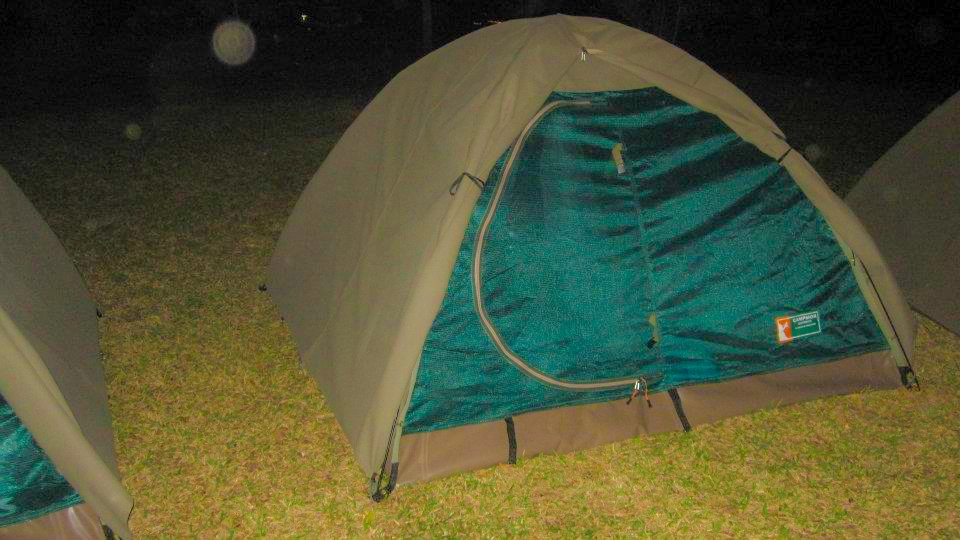
There is not much in the way of budget accommodation in the national parks due to overnight park fees which increase the rates but you can certainly minimise costs in the national parks by using campsites.
The lowest cost accommodation I stayed at was an eco-hostel in Arusha which cost me around $20 per night including breakfast.
You had a private bathroom with a shower.
Activities included milking their cows and there was a nice little bar on site and free local bananas.
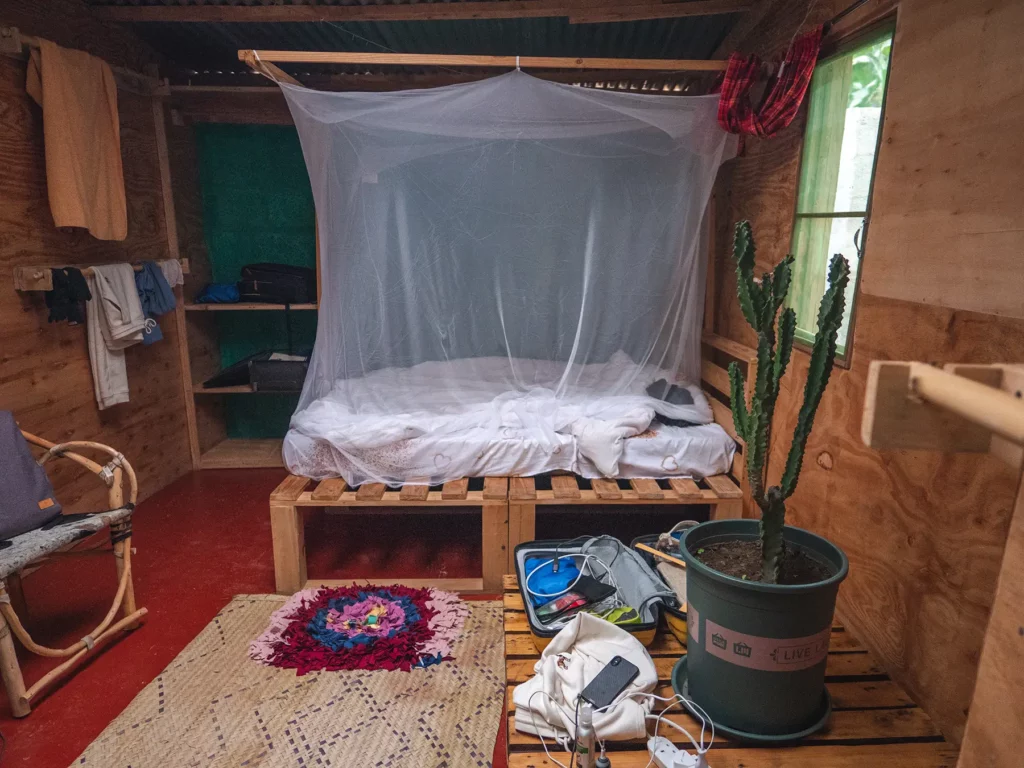
I stayed in an interesting little pod-style room at Panorama camp for $65 p/p per night. They also had small permanent tents which were $12 or if you wanted to pitch your own tent it was $10.
To stay here you ideally needed your own chef as it was un-catered. The chefs would all cook for their individual groups in the communal kitchen and then you would eat in the communal eating area. There was often entertainment in the form of local dancers.
There were communal bathrooms with showers which were around 30 seconds walk from our room.
Although the communal bathrooms were not ideal, especially if you needed a wee in the night, it did have amazing views.
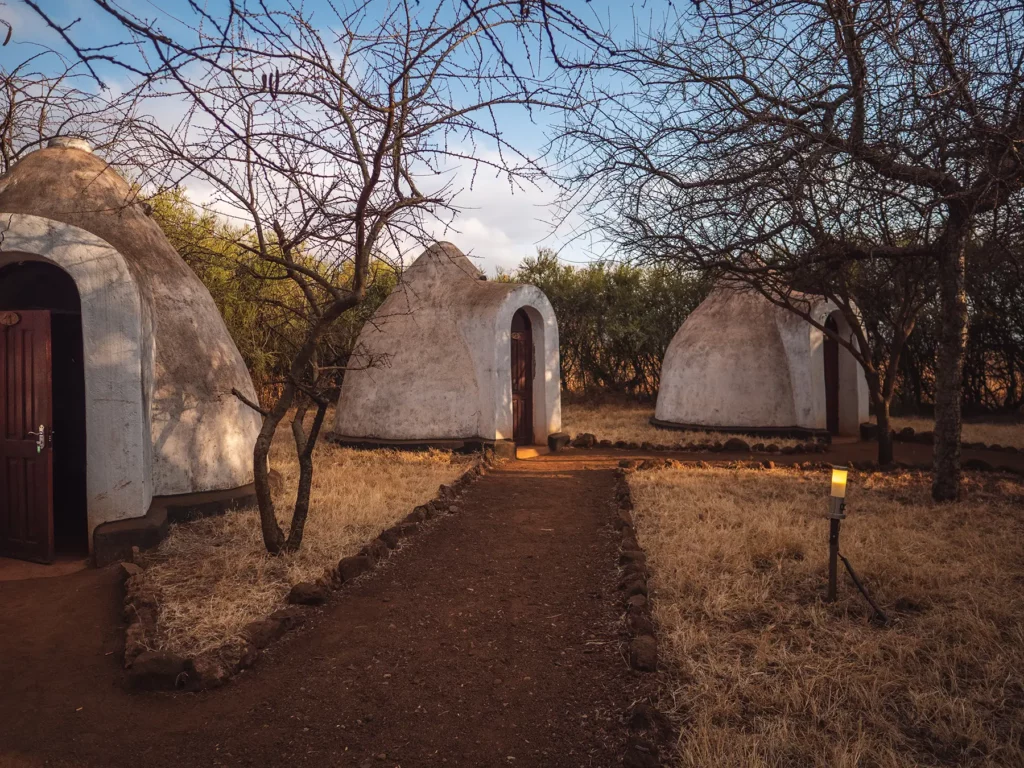
Fanaka camp site was a catered budget accommodation at $35 per night. They even had a swimming pool although we didn’t have time to use it. The room came with a private bathroom. There were quite a few mosquitos so we had to be careful when opening and closing the door. There was a strong smell of mosquito spray as they’d given the room a blast before our arrival.
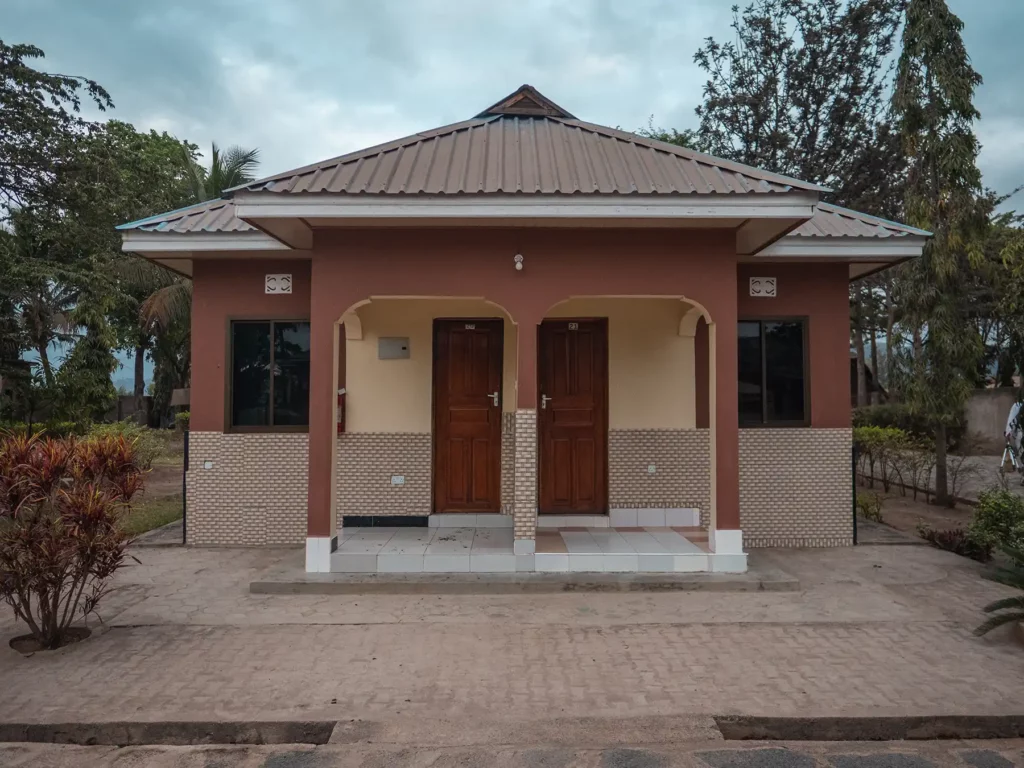
Mid-Range Tanzania Accommodation Costs
($100-$500 per person per night)
Mid-range accommodation includes both tented camps and lodges. The tented camps are very different from the budget tents – they are big permanent tents and have traditional beds and showers. You can see an example below.
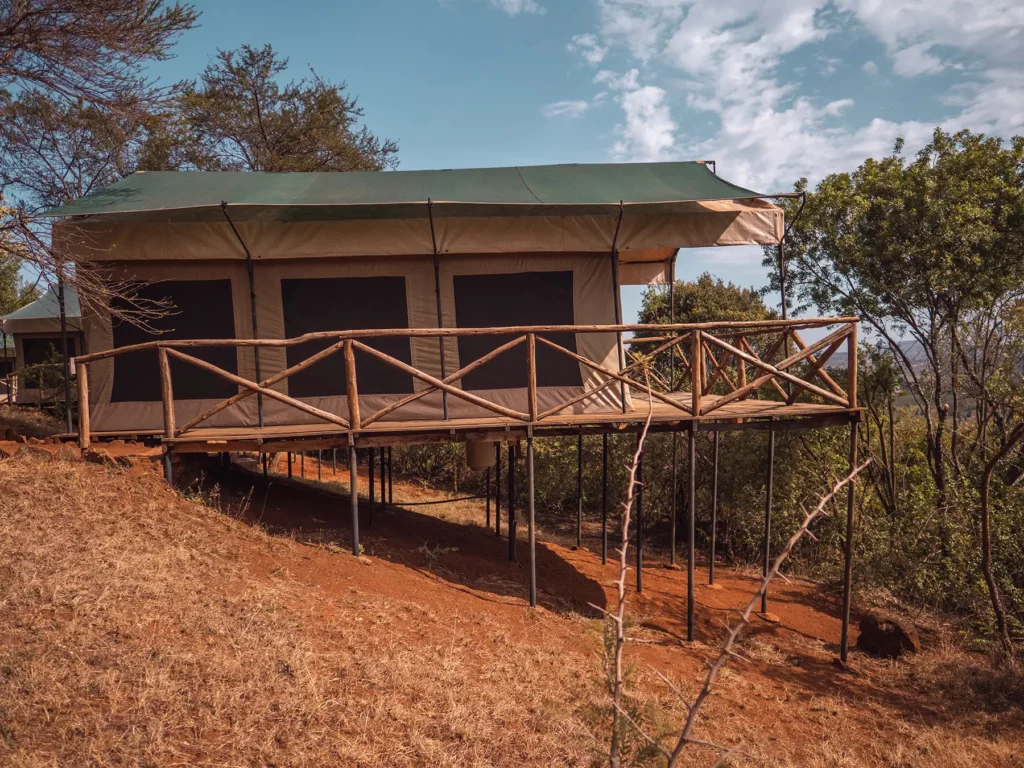
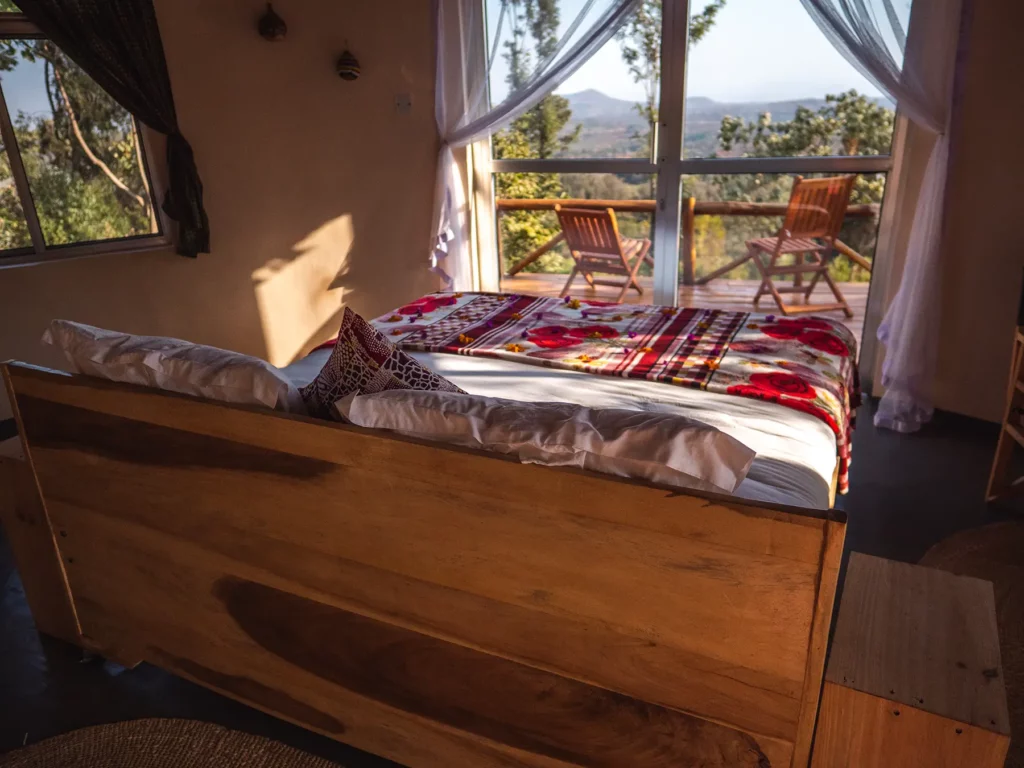
The mid-range accommodation I stayed at in the Serengeti featured a bucket shower – I gathered this was because all water in the Serengeti is brought in on trucks. It’s quite a fun experience which involves the staff winching a bucket of warm water over your accommodation. You then turn on the shower inside your bathroom and shower as normal. If the water runs out they quickly winch up another bucket.
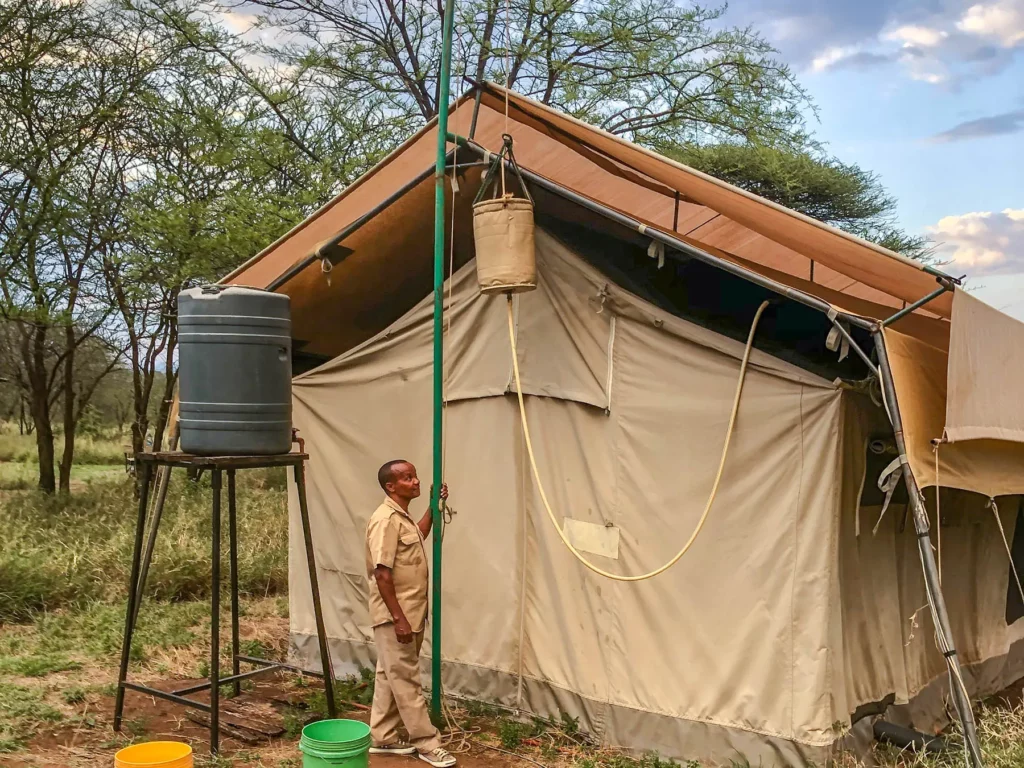
Luxury Tanzania Accommodation Costs
($300 – $3,000 or more per person per night)
The Luxury category of accommodation spans quite a wide range. Some luxury accommodation is at the same site as the mid-range accommodation but you are getting an upgraded room which is larger and has more facilities such as a bathtub and separate office or sitting room. In some cases you will be staying at separate high-end accommodation.
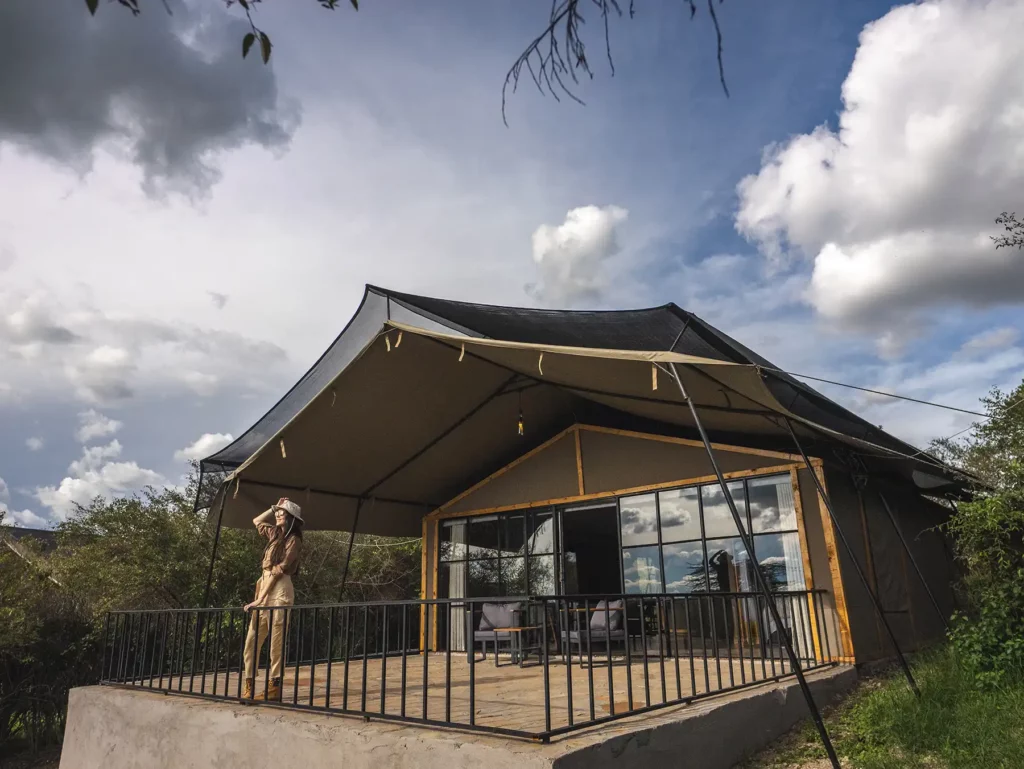
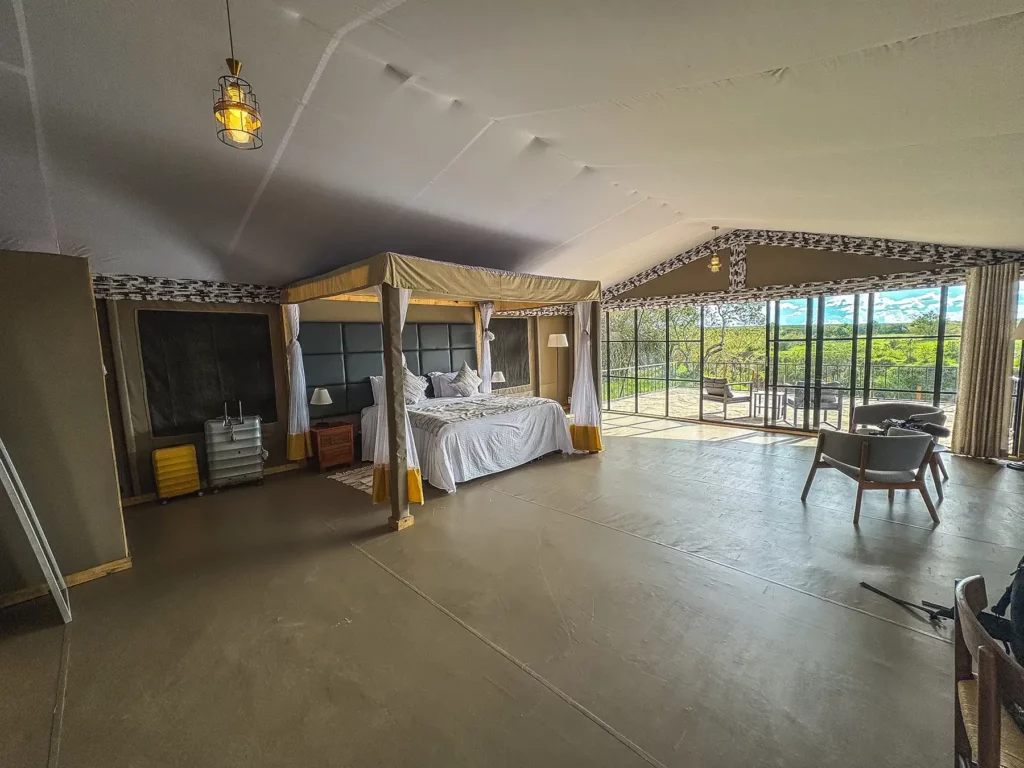
In the national parks the most luxurious accommodation can be made of wood rather than tended camps and include amenities such as infinity pools and saunas.
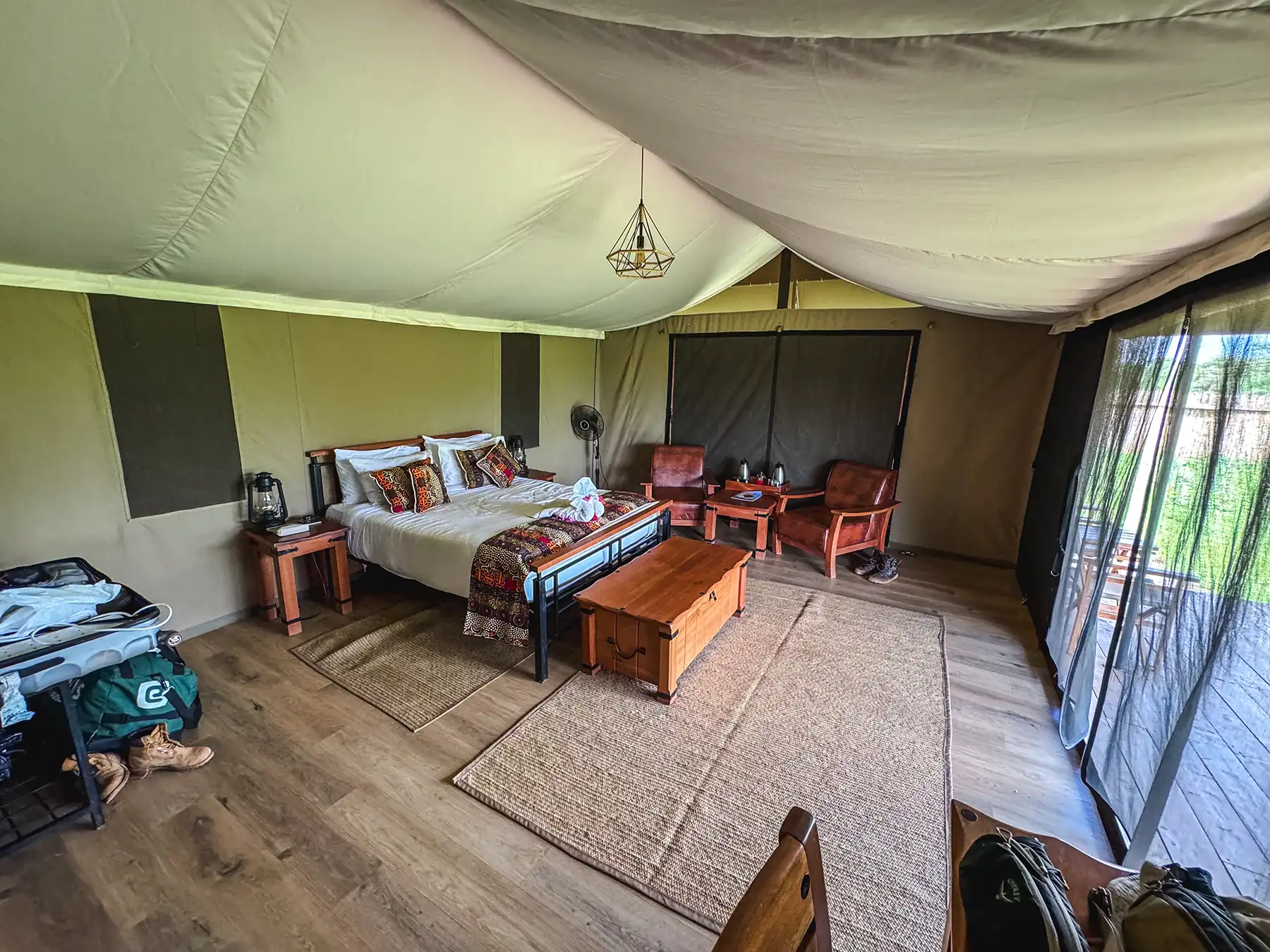
Beyond luxury there is also Luxury+ costing up to $15,000 and beyond per person per night.
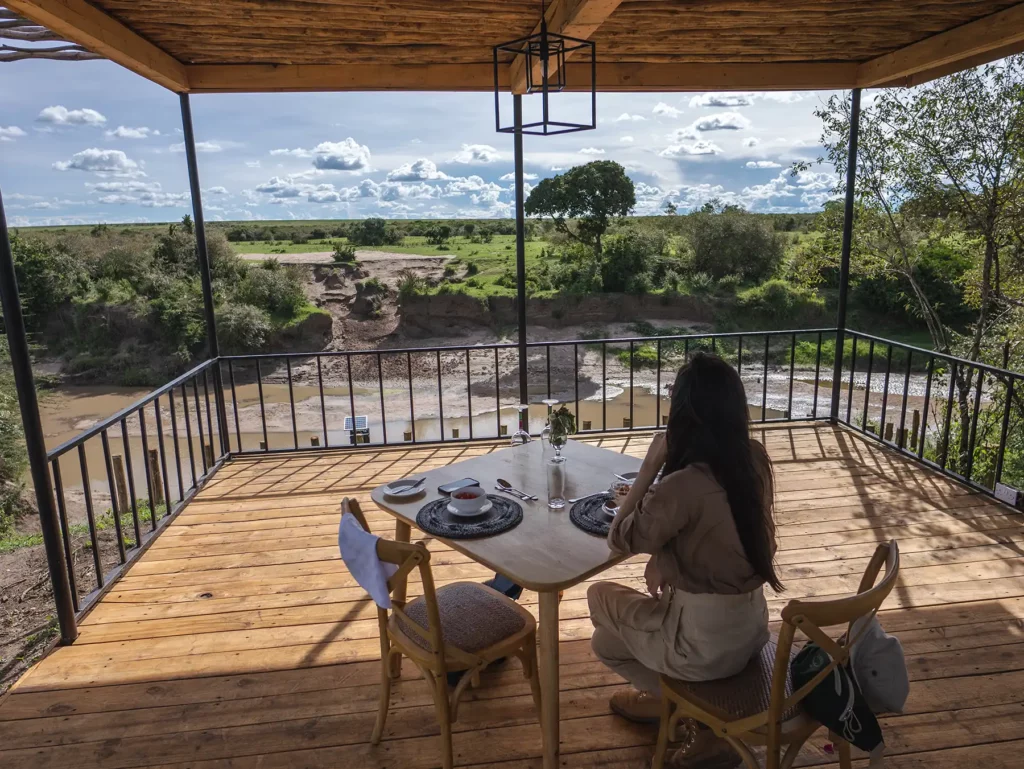
It’s always a treat to stay at luxury accommodation. However, sometimes if I’m on safari from 6am till the end of the day, I don’t always get much time to appreciate the accommodation as much as I’d like to.
Having a day or afternoon / morning off from safari gives you the time to really make the most of luxury accommodation as well as to rest and recharge, especially on longer safari itineraries such as a 2 week Tanzania and Kenya itinerary.
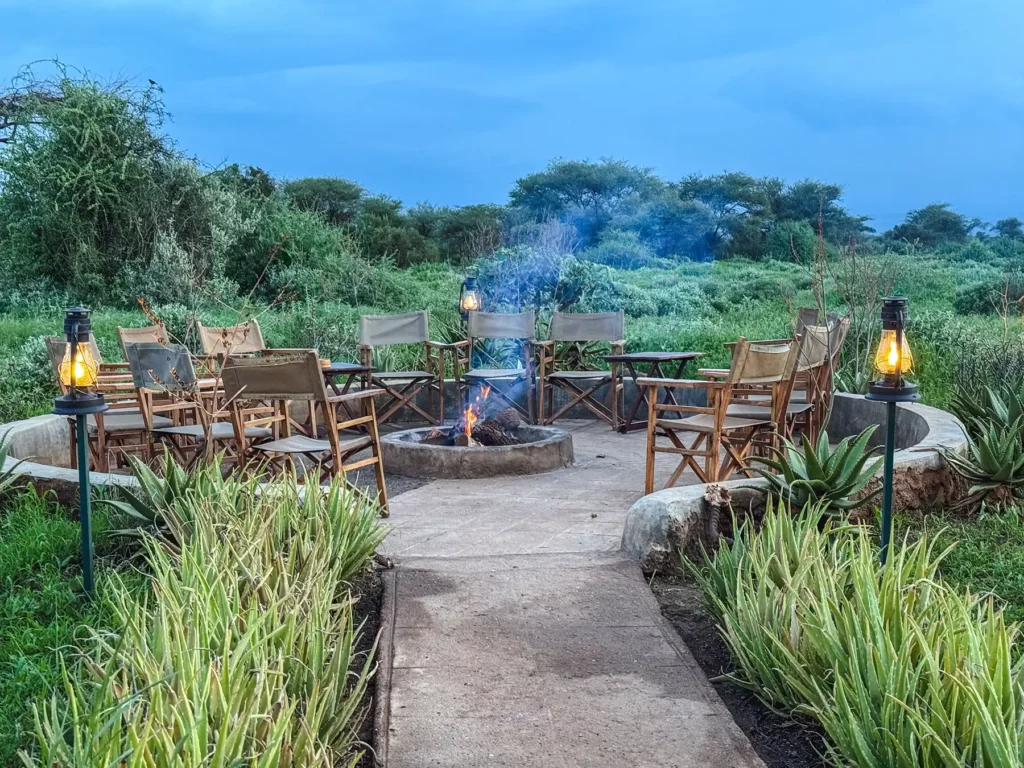
3. Time of Year Costs Differences
As with most holiday destinations, safari costs vary based on the time of the year.
Below are the three ‘seasons’ for Tanzania safaris.
Low season aka green season (March, April and May)
Shoulder (January & February, November & December)
Peak Season (July to September or October)
You can expect to save around 20-30% in low season and 12-15% in shoulder season on a full safari package. Most of the savings will come from accommodation as it is accommodation which offers the biggest discounts outside of peak season. Accommodation can be discounted by as much as 50% from their maximum prices at the height of peak season to their lowest rates in the depth of low season.
For more information on choosing the best time for you, see my guide on the best time to visit Tanzania.
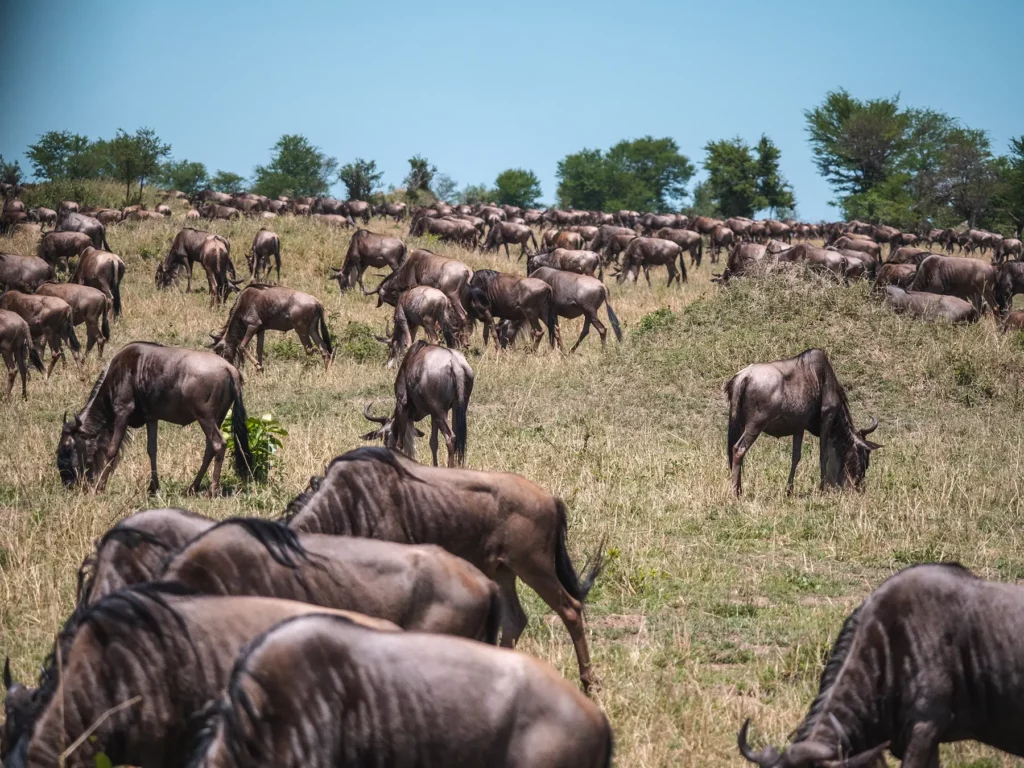
4. How You Travel Between Safari Parks
Your mode of transport will have a big impact on the cost of your safari.
Minibus
This is the cheapest option. However, minibuses are often overloaded and involved in crashes. They are also not allowed inside the national parks. Personally I would always recommend being picked up from the airport in a safari truck or luxury taxi especially if travelling at night.
Safari Truck
A safari truck is a cost-effective and safe way to travel between safari parks as well as on safaris themselves. They are comfortable and kitted out with luxury features such as plug sockets, fridges and speakers.
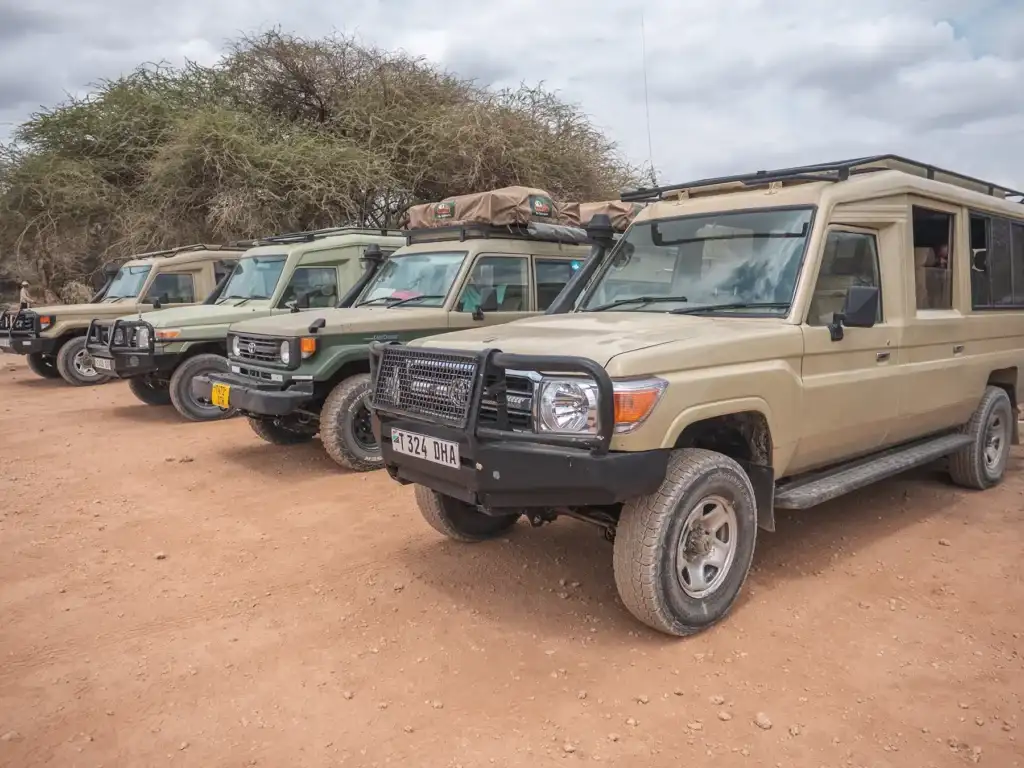
Scheduled & Chartered Propeller Planes
If you’re in a rush or want to avoid some of the longer road journeys, scheduled propeller planes can take you between safari destinations but come at a price. Prices average around $300 per adult one-way. You can see one provider called Coastals schedule and 2023-2025 prices here.
You also have the option to arrange a private propeller plane if you wish to travel at a specific time.
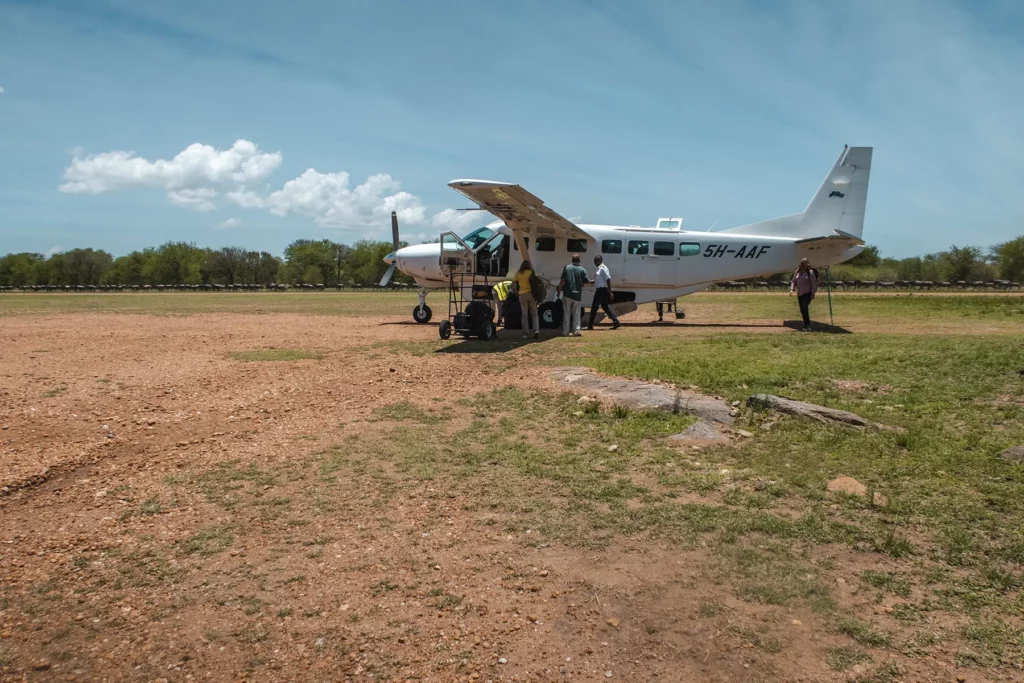
Private Jet
If you’re a rock-star, chartering a private jet to hop around the country can cost over $100,000 or more specifically $2,000-$11,000 per billable hour. As well as being super pricey, private jets are also arguably not the most environmentally friendly way to go on a safari.
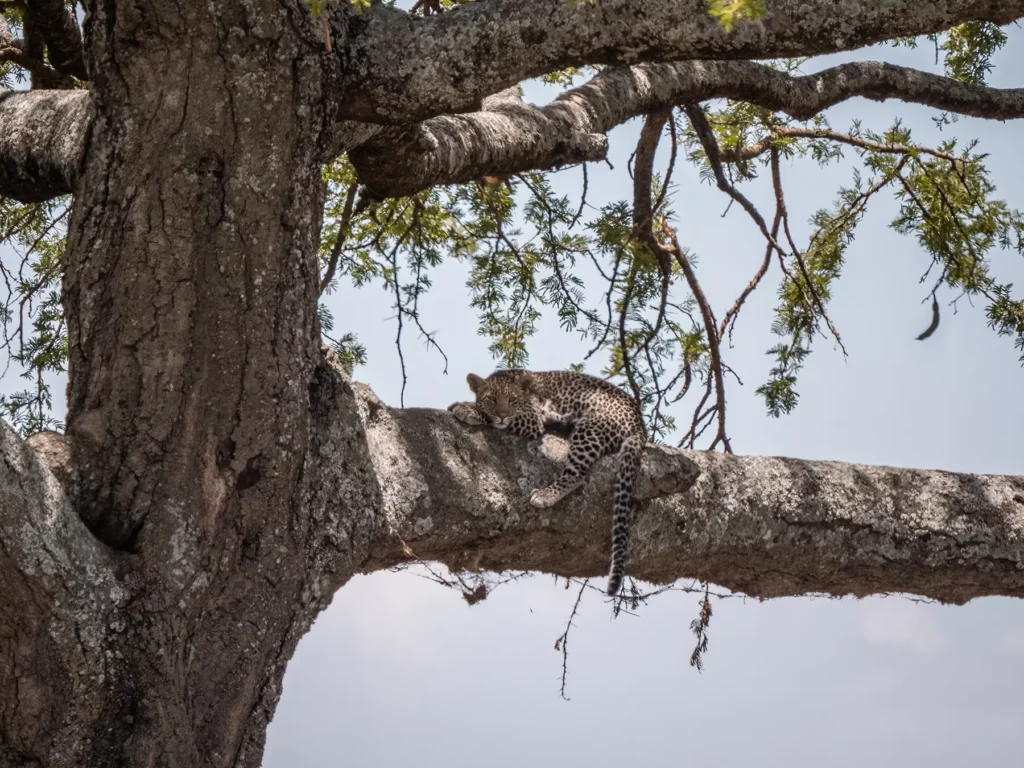
5. Tanzania Park Entrance Costs
As you can see from the cost breakdowns here, Tanzania park entrance fees can make up around 30% of your total safari cost.
The chart below gives you a good indication of the variation in entrance fees for some of the most popular parks.
I’ve calculated the fees based on 2 adults in a safari truck weighing between 2001 – 3000 kgs. Vehicle entrance fees have been included for better comparison with Ngorongoro Crater & Conservation Area as vehicle entrance fees are fairly low cost for National Parks but make up a significant part of the Ngorongoro Conservation area fees.
Once you’ve paid the $318 fees for 2 adults and a vehicle to go inside the Ngorongoro Conservation Area, going into the crater is $295 on top of those fees.
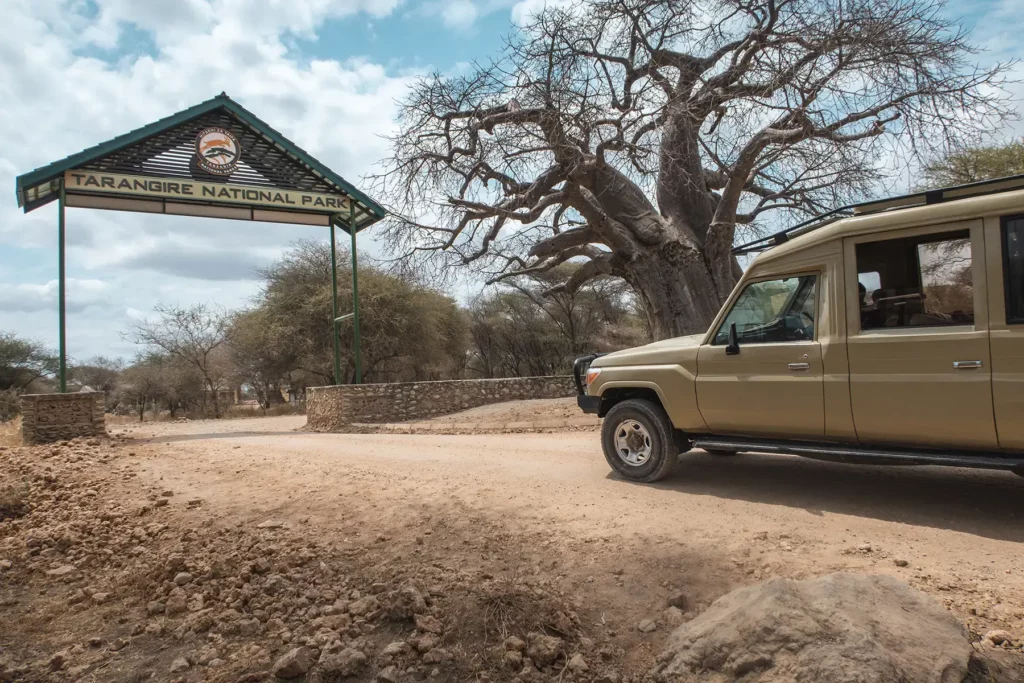
The Serengeti fees shown are not the full story as you will pass through Ngorongoro Conservation Area on your way to the Serengeti (assuming you start from Arusha and drive rather than fly) and thus have to pay $141 (for 2 adults) Ngorongoro Conservation Area entrance fees on top of Serengeti fees shown.
It would make sense to have an Ngorongoro safari on your way to the Serengeti to make the most of your entrance fees.
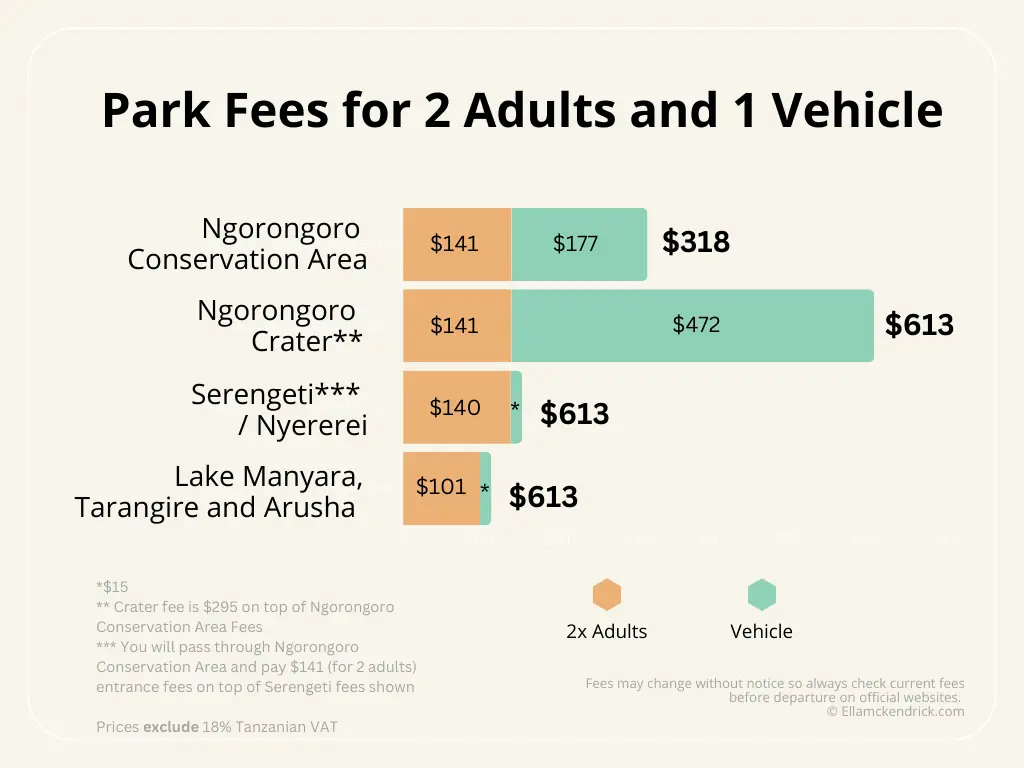
Tanzania National Parks Entry Costs (Conservation Fees) to 30th June 2024.
I’ve also included the popular Ngorongoro Conservation Area which is a Conservation Area rather than a National Park.
| National Park | Adult (16+)Per person per day | Child (5-15 years)*Per person per day |
| Ngorongoro Conservation Area *Motor vehicle permit for 2,001-3,000kg is $177.00 | $70.80 | $23.60 |
| Ngorongoro Crater *Motor vehicle permit for 2,001-3,000kg is $177.00 Extra fee to visit crater: $295 per vehicle / trip | $70.80 | $23.60 |
| Serengeti and Nyerere National Parks | $70 | $20 |
| Lake Manyara, Tarangire and Arusha National Parks | $50 | $15 |
| Kilimanjaro National Park | $70 | $20 |
| Katavi, Mikumi, Ruaha, Rubondo Island, Saadani, Kitulo, Mkomazi, Udzungwa Mountains, Burigi-Chato, Ibanda-Kyerwa, Rumanyika-Karagwe Saanane Island National Parks | $30 | $10 |
| Gombe National Park | $100 | $20 |
| Mahale National Park | $80 | $20 |
| Ugalla River and Kigosi National Parks | $20 | $20 |
Notes:
- Prices exclude motor vehicle entry fees, overnight and camping fees and other special permits such as sport fishing and are subject to change without notice. Please check the latest fees here: Tanzania Parks and Ngorongoro *For Ngorongoro I have noted the vehicle entrance fees as these are significant. For the other national parks listed vehicle entrance fees are typically around $15.
- Rates are peak season fees (16th May – 14th March). The following parks have low season (15th March – 15th May) reduced rates: Serengeti and Nyerere National Parks Adult fees are reduced to $60. Lake Manyara, Tarangire and Arusha National Parks adult fees are reduced to $45
- Child (under 5 years) is free
- Rates for Non-East African Citizens
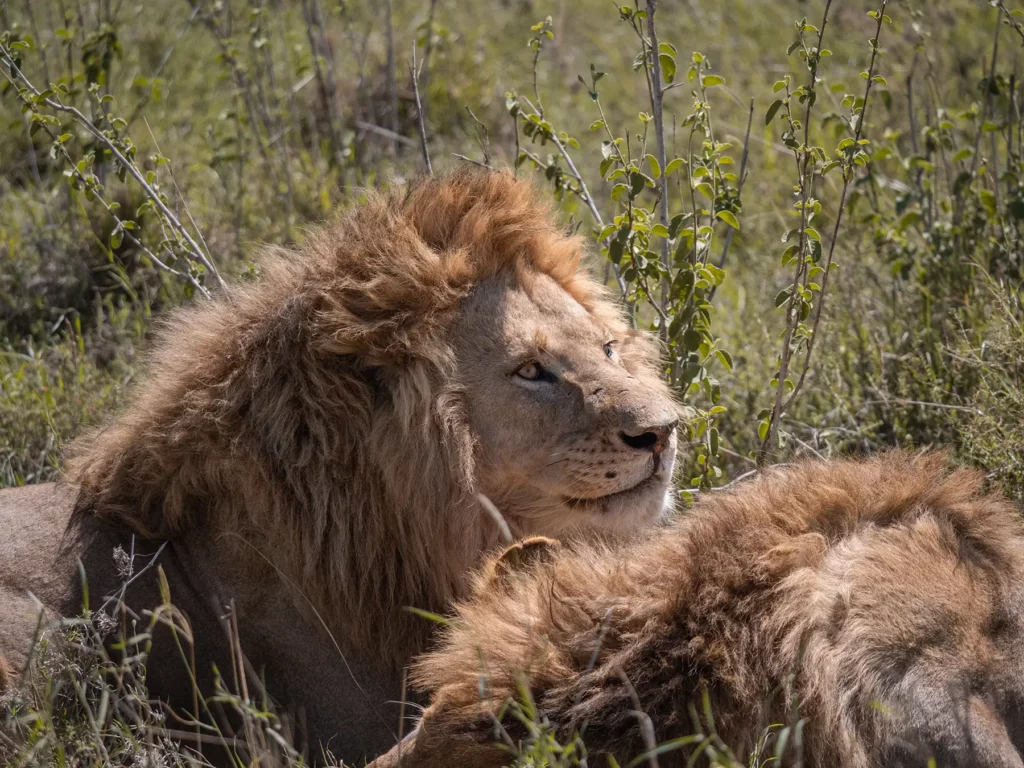
6. Safari Group Size Effect On Costs
Group size will affect the costs of the fixed portions of your safari cost such as the safari truck. However, in my experience beyond a group size of 2 people the cost savings for bigger groups are not that significant. This is largely down to Tanzania accommodation typically charging on a per person basis.
A safari truck with a driver / guide can cost $250-350 per day depending on specification. The safari truck can take up to 7 guests. However, the greatest savings come from having two people rather than one person with a saving per day per person of $120. Sharing with a 3rd and 4th person saves £41 and then $20 per person. Beyond 4 people the extra savings per person by adding more people to the truck are minimal.
Effect of group size on truck cost per person
| Party size | Truck contribution per person | Group size savings per person |
| 1 | $250.00 | $0.00 |
| 2 | $125.00 | $125.00 |
| 3 | $83.33 | $41.67 |
| 4 | $62.50 | $20.83 |
| 5 | $50.00 | $12.50 |
| 6 | $41.67 | $8.33 |
| 7 | $35.71 | $5.95 |
There are a few other fixed costs which will be reduced by bigger group sizes. These include:
- Any accommodation changing on a per room basis but this is rare as most accommodation charges per person
- Cultural tours such as visits to the Maasai which are not billed on a per person basis
Per person costs which will not be reduced by bigger groups include:
- Most accommodation which is charged on a per person basis
- Park fees
- Flights
- Food
Northern Circuit Vs Southern Circuit Safari Costs
Most of the costs in this article are based on the northern circuit as this is by far the most popular safari circuit in Tanzania and includes many of the famous national parks.
The southern safari circuit requires a lot more travelling due to the much larger distances involved both to reach the start of the southern circuit and also to move from park to park. These longer distances are compounded by a lower quality of roads which slow down travel. Also as the southern circuit has less visitors there are less services such as flight operators in that part of the country and as such flight costs can be higher due to less competition. For this reason the Southern circuit is notably more expensive.
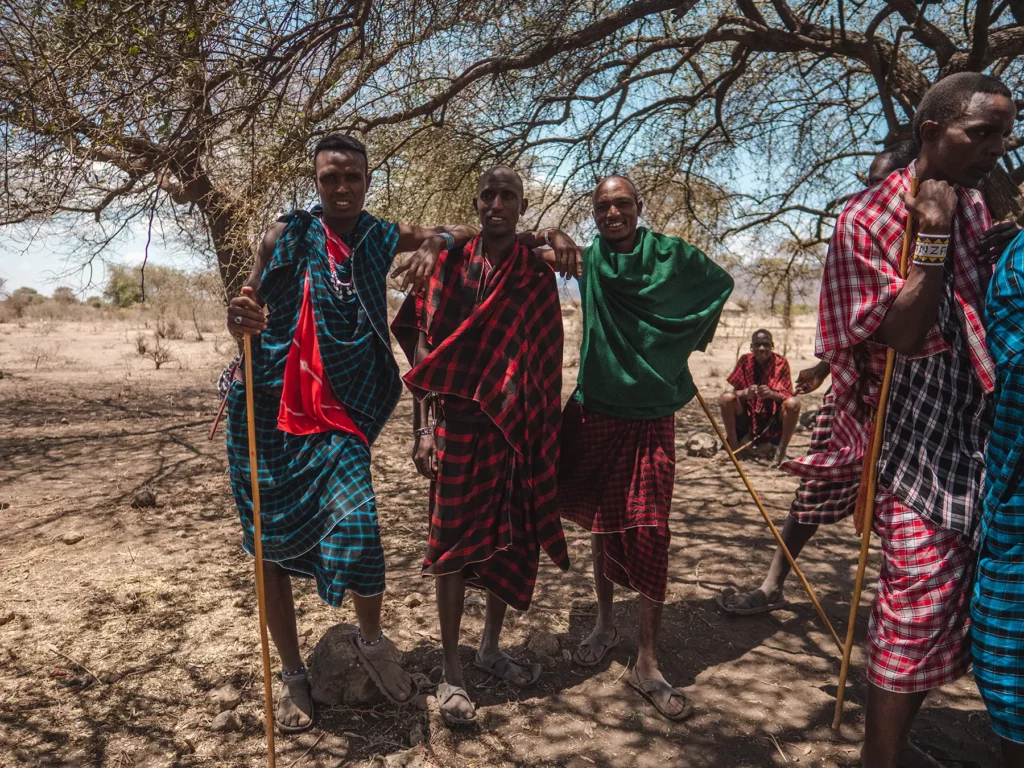
Below is a quick example to give an indication of the extra costs involved in the southern circuit.
A 7 -10 day mid-range safari on the northern circuit can cost around $450 per day with a local supplier.
If you wanted to have a similar 10-day safari on the southern circuit you would have the following additional costs listed below. This of course assuming you didn’t want to spend days and day driving to the parks in the south which itself would add extra costs by elongating your total safari length.
Flight from Dar to Selous $192
Flight from Selous to Ruaha $367
Flight from Ruaha to $591
Total $1,150
Extra cost per day on 7 day safari for increased transport costs: $164 per person per day.
Transport costs are one of the main extra costs of going on Tanzania southern circuit. However, other factors which could increase costs further are the fact that there are less safari operators who cover the south which means less competition and higher rates. Same can be true for the accommodation in the south.
As a rough guide, taking into account extra travel costs plus other cost factors above, you could assume 40-50% more per day to visit the southern vs northern circuit for a mid-range and luxury safari.
For the reasons mentioned above the southern circuit is not the best option for a budget safari.
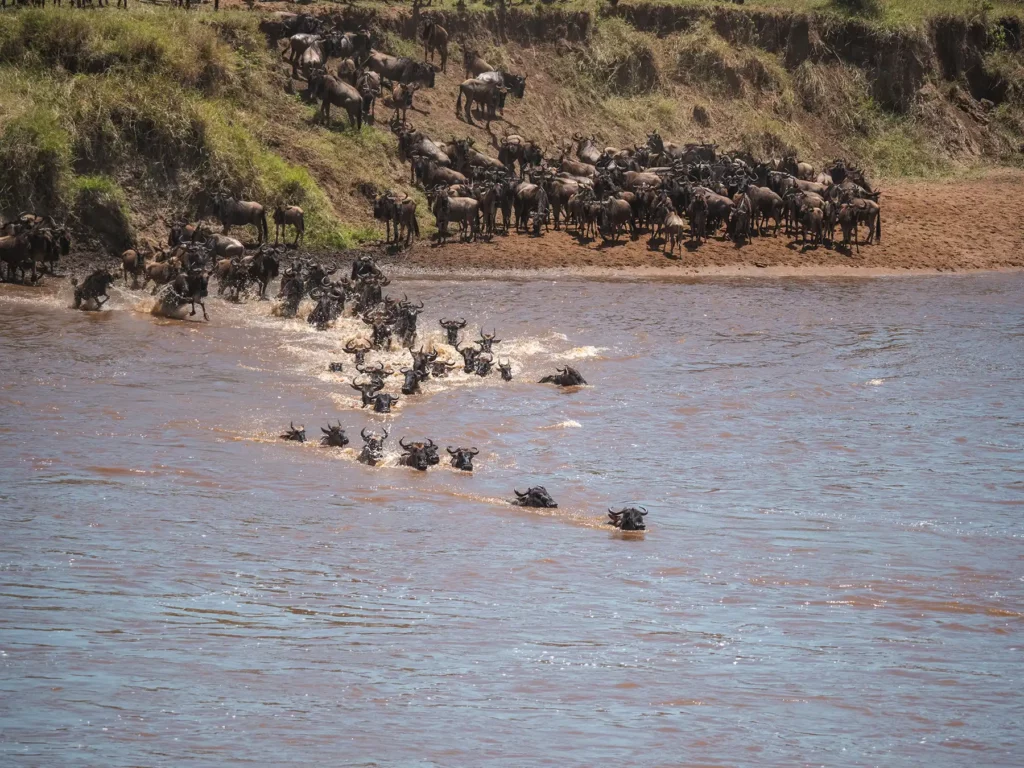

Embark on the Safari of Your Dreams
Save time and ensure an incredible safari experience by getting quotes from my recommended local safari companies
I’m here to make booking your perfect safari quick, easy and risk-free.
Join the rapidly growing tribe of over 1,000 travellers who’ve booked their dream safari using my insider tips and recommendations.

It takes under 60 seconds to fill out the form and in under 48 hours you will receive multiple, no-obligation proposals from my favourite local tour operators with glowing online reviews.
Get your free no-obligation safari quotes and my top safari tips and recommendations
How do Tanzania Safari Costs Compare with Other African Safaris?
Safaris in Tanzania are some of the the lowest cost safaris in Africa, just above Kenya but lower-cost than other destinations such as South Africa, Botswana, Uganda and Rwanda.
You can see how costs compare across popular African safari destinations below:
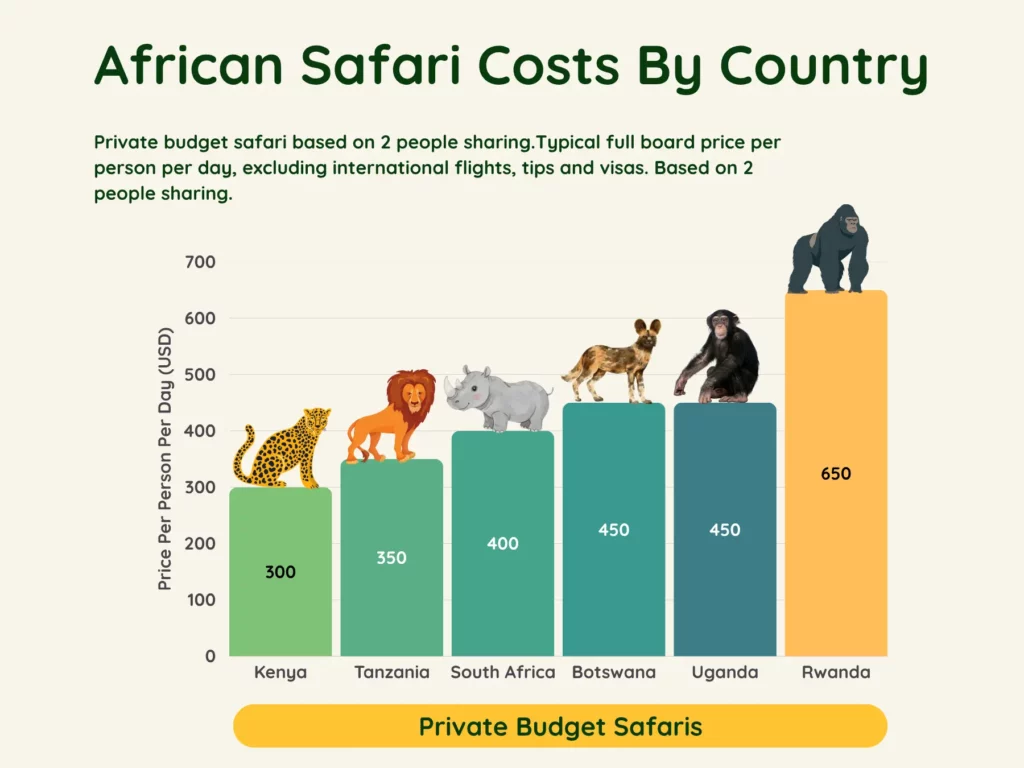
| Destination | Private Budget Safari Cost PP/Day |
|---|---|
| Kenya | 300 USD |
| Tanzania | 350 USD |
| South Africa | 400 USD |
| Botswana | 450 USD |
| Uganda | 450 USD |
| Rwanda | 650 USD |
Cultural Experience Tours Costs
With over 150 tribes, Tanzania has one of the most diverse cultures in Africa. No safari would be complete without one or more cultural experience tours which will allow you to learn more about some of the tribes of Tanzania including their unique traditions and way of life.
My visit to the Hadzabe hunter gatherer tribe was my join #1 experience in Tanzania along with the Mara River crossing in the Serengeti. Visiting the Maasai and learning about their way of life was also an eye opening experience and one which I will never forget – I absolutely loved joining them for their traditional jumping dance.
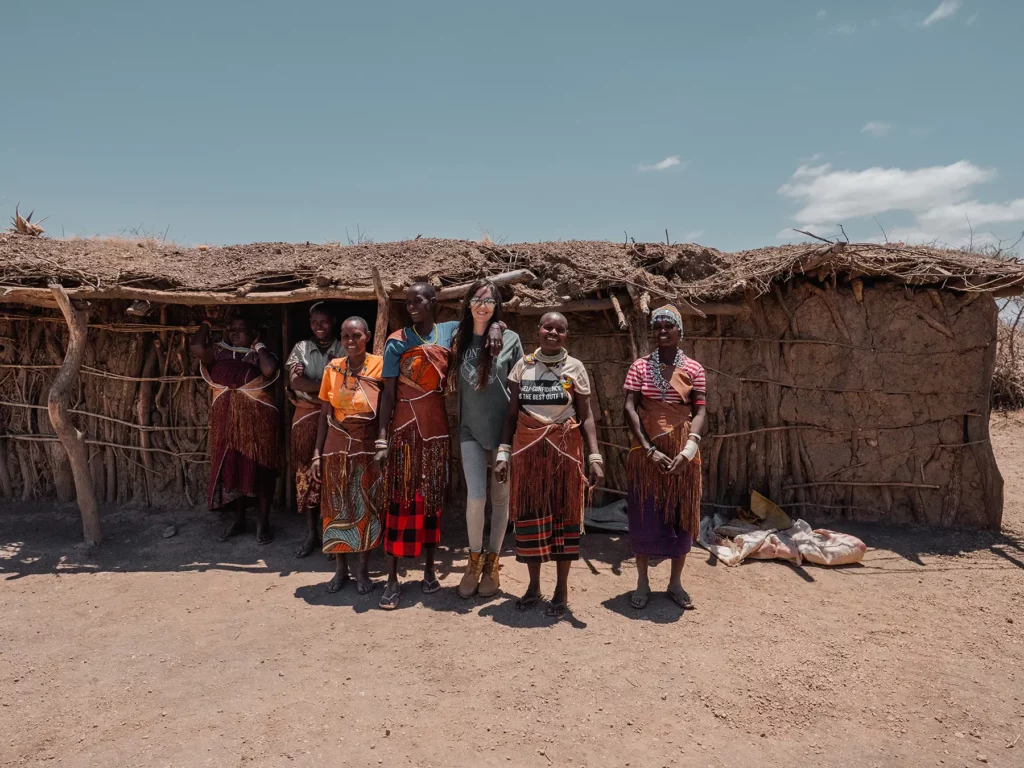
Visiting the Maasai Cost
No trip to Tanzania is complete without a cultural excursion to visit the world famous Maasai tribe, famous for their distinctive dress and warrior traditions.
The Maasai migrated to Tanzania from present-day South Sudan in the 15th century. The Maasai people are a semi-nomadic pastoralist community who move with their livestock to different areas in search of grazing land and water sources.
Cows are sacred to the Maasai and they rely on their cows for everything.
Like many tribes in Tanzania the Maasai are polygamous meaning they have more than one wife. Please stay open minded when learning about their unique way of life.
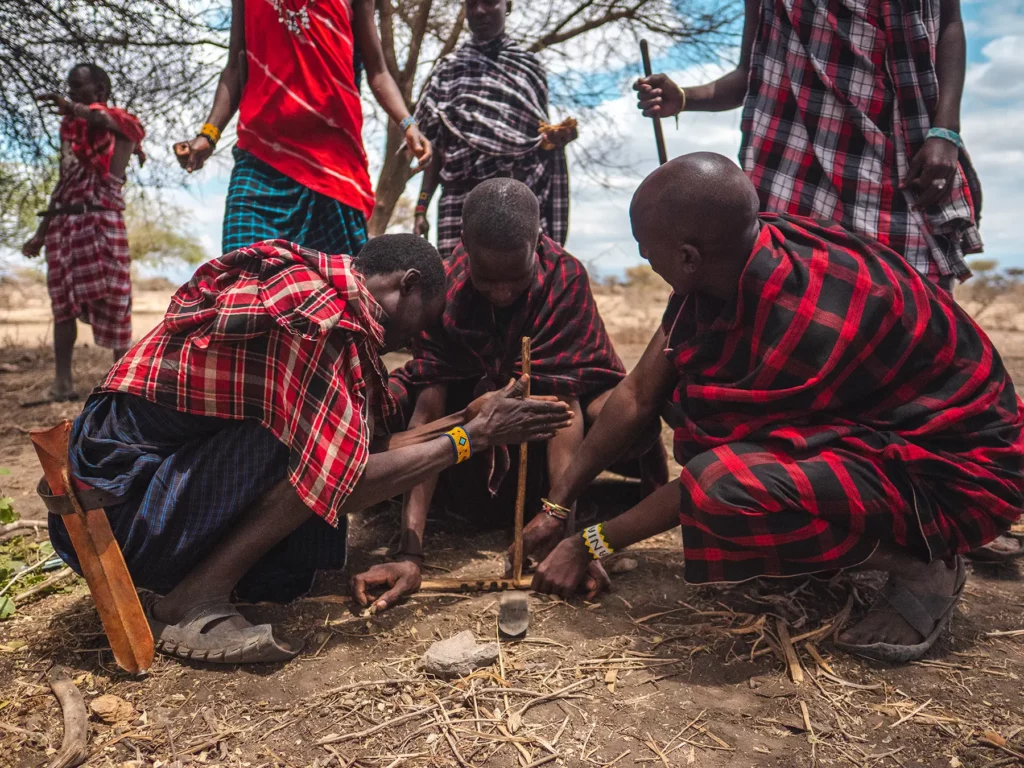
The Maasai are warm and welcoming to guests and they will usually celebrate your visit with their traditional jumping dance featuring amazing vocals. During the dance, the men of the village show their strength by jumping as high as they can. You might even be invited to join them in the dance.
The Maasai will teach you about their semi-nomadic lifestyle and show you their houses, school and sacred cows. In some cases you may wish to spend the evening with the tribe for food by the fire and dancing.
I visited the Maasai in the Maasai Steppe Region in the Ngorongoro Highlands and Lake Manyara.
The cost for a visit to the Massai tribe is around $40-$100 per person depending on the length of visit.
You can view a couple of videos of my experiences visiting the Massai below:
Visiting the Hadzabe Cost:
The Hadzabe tribe is one of the oldest indigenous groups in Tanzania and one of the last remaining hunter gatherer tribes in the world.
The Hadzabe are located in Tanzania’s Lake Eyasi region.
Anthropological evidence suggests that the Hadza people have been living in Tanzania for at least 50,000 years, possibly longer.
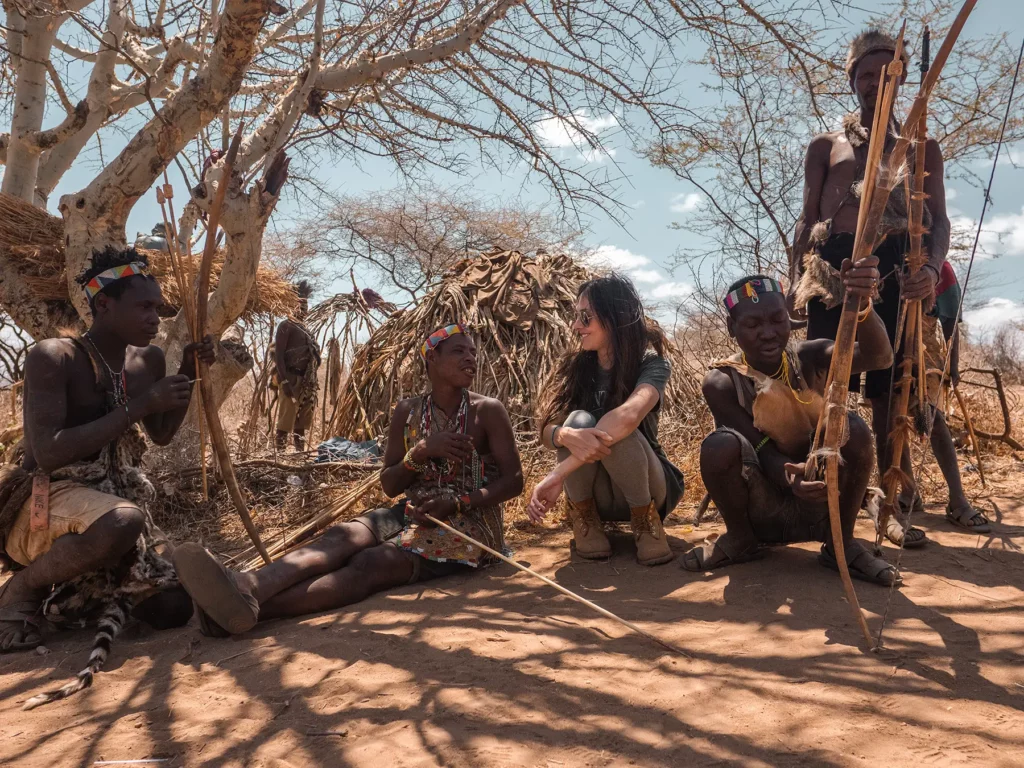
Visiting the Hadzabe is like taking a step back in time – you will need a specialist guide who has lived with the Hadzabe for at least 6 months to learn to communicate with them. Meeting the Hadzabe is never guaranteed due to their nomadic nature.
Visits to the Hadzabe include learning about their lifestyle such as seeing how they make fire, their simple dwellings and how they cook their food. You can even join the tribe for a short hunt.
The cost for a basic visit to the Hadzabe tribe is around $150 per person.
You can view a video of my visit to the hadzabe here:
Special Interest Safari Costs
Special interest safaris such as a photography or bird watching safari often require specialist guides or equipment which can make them more expensive compared to a standard safari.
Birding Safari in Tanzania Cost
Tanzania is a fantastic destination for bird watching enthusiasts, with over 1,100 bird species recorded in the country.
Approximately 35 species are endemic to Tanzania and the adjacent countries of Kenya and Uganda. Some of these are restricted to the Eastern Arc Mountains and the coastal forests.
The best time for a Birding safari is at the beginning of the rainy season, known as the green season (November to April) as many of the migratory birds fly into Tanzania as the rains start.
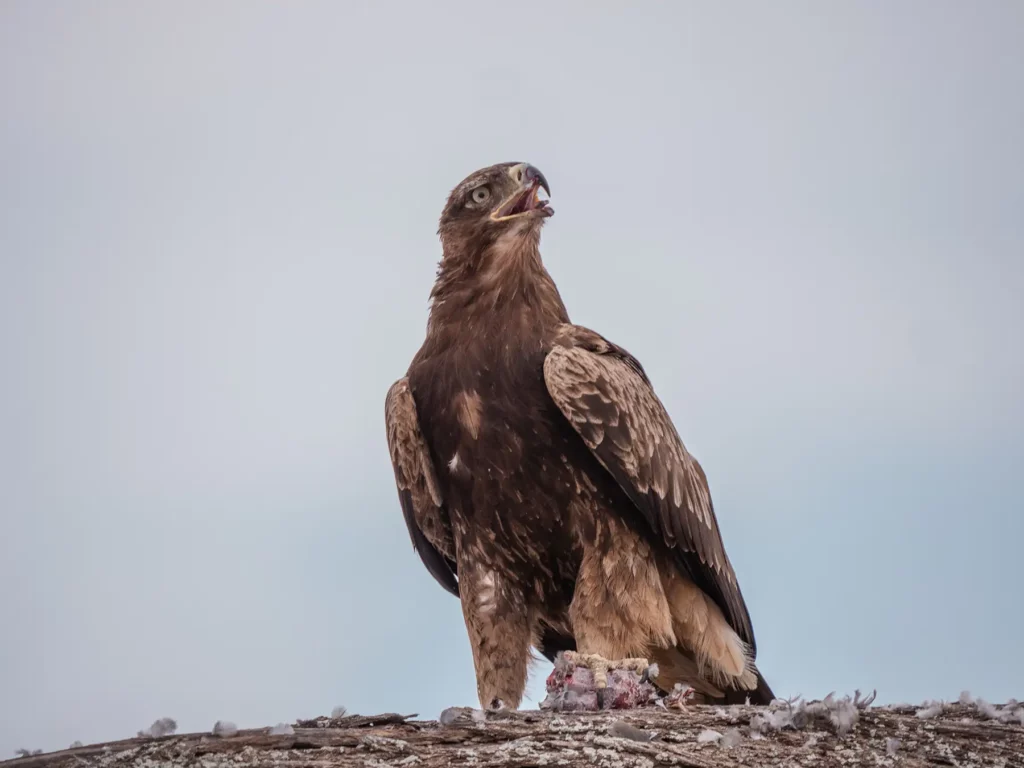
Birding highlights in Tanzania include Serengeti National Park with 500 bird species including ostriches, secretary birds, eagles and vultures. The Usambara Mountains in northeastern Tanzania is home to Usambara Akala, Spot-throat and Taita Fiscal who are endemic to the Eastern Arc Mountains . Ngorongoro Conservation Area: This UNESCO World Heritage Site is home to over 500 bird species, including the rare Lammergeier vulture and the Kori Bustard.
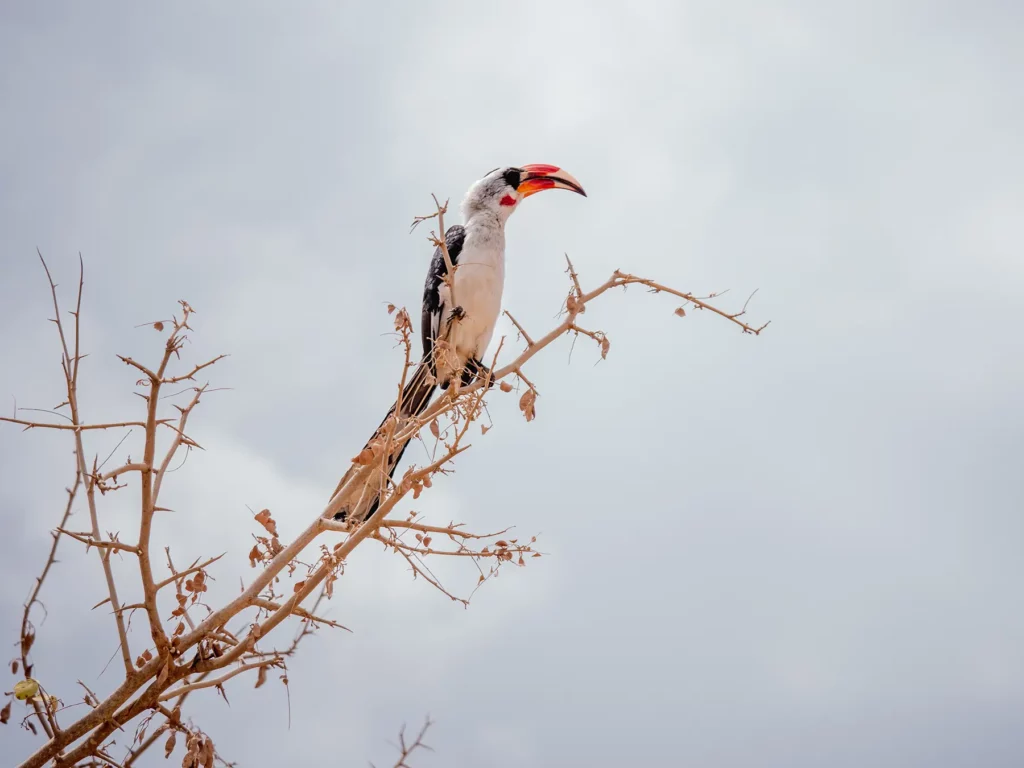
In the south of Tanzania, Ruaha National Park which covers 20,000 square kilometres offers sightings of birds such as African Fish Eagle, African Grey Hornbill and the African Harrier-Hawk as well as various species of eagles, owls, storks, and vultures.
A birding safari will usually require a specialist guide with extensive knowledge of Tanzania’s birds.
Birding safari will typically cost an extra $50-100 per day on top of the usual safari prices.
You may also require a long distance lens for your DSLR camera with a 800x magnification or similar.
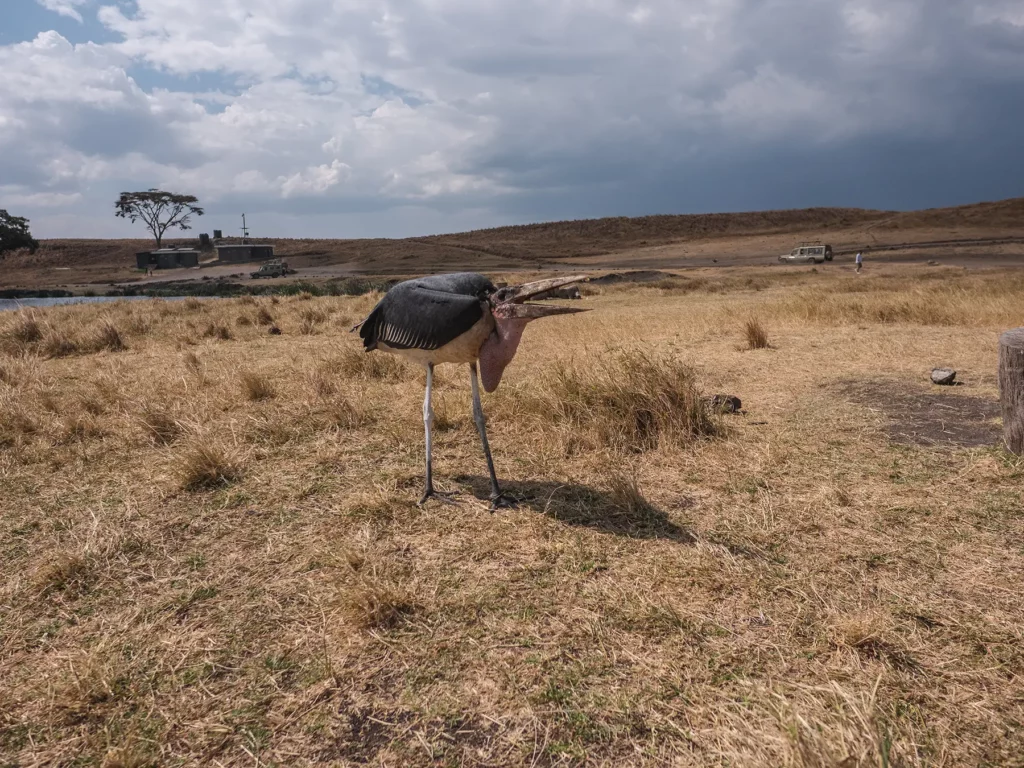
Photography Safari in Tanzania Cost
A photo safari may require an experienced photographer as a guide and in some cases a specialist photo safari truck with large open windows.
Some photography trucks also allow for a large camera to be attached at a low level on the front passenger side of the truck.
Safaris may also start before dawn to allow for photos as the sun rises.
A photography safari will typically cost an extra $50-150 per day on top of the usual safari prices.
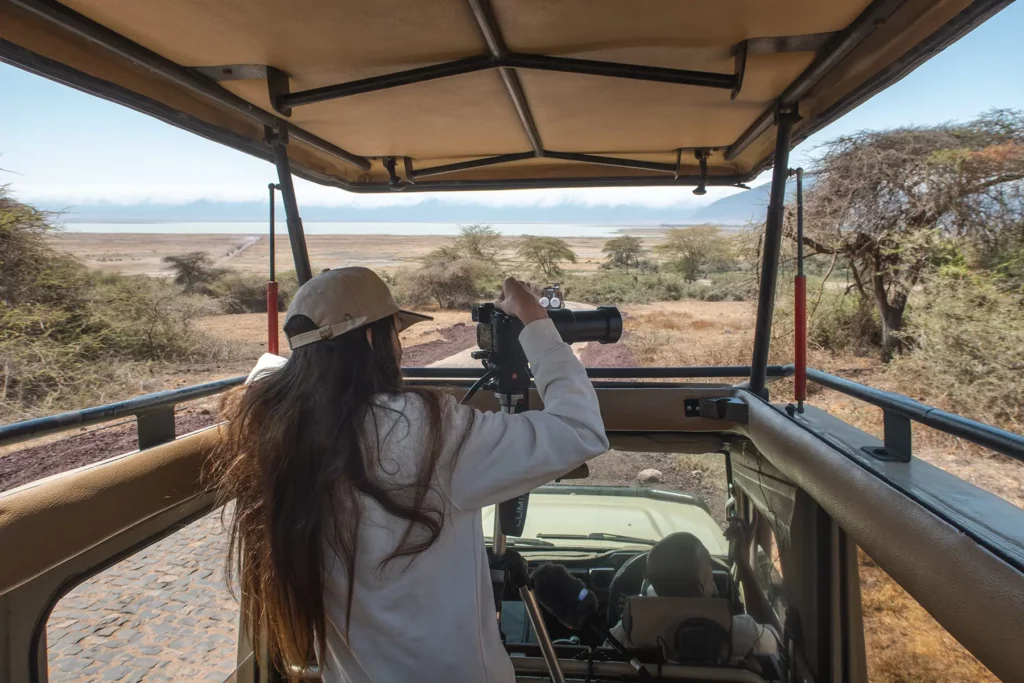
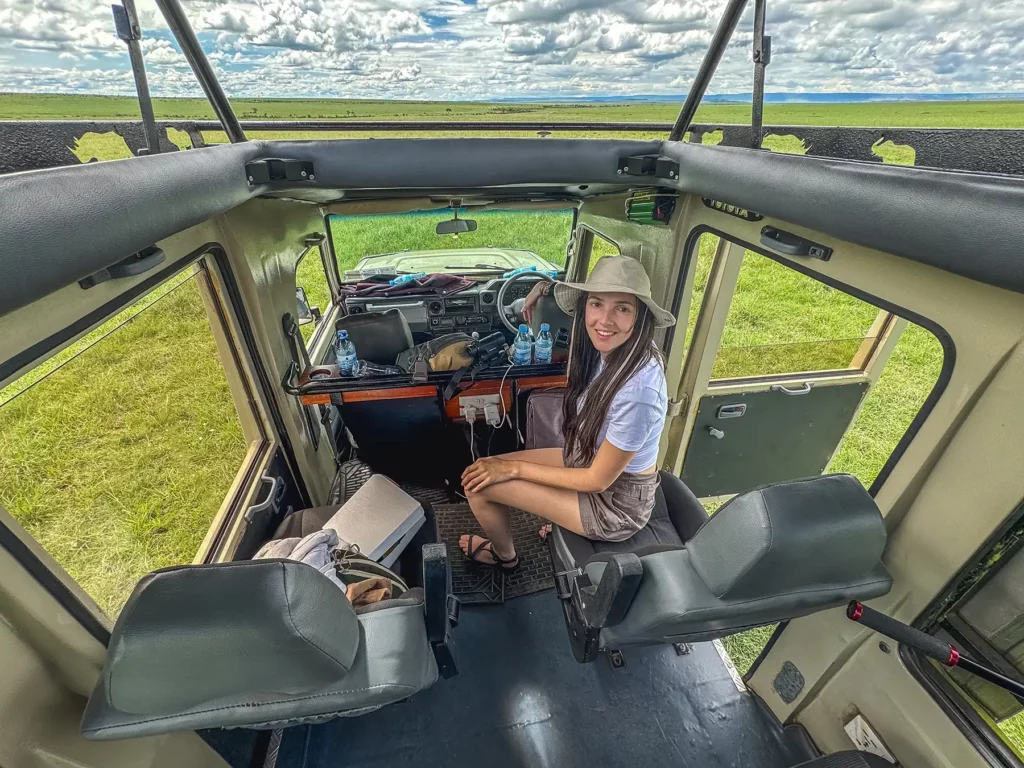
Hiking and Walking Safari in Tanzania Cost
Hiking and walking safaris are a great way to immerse yourself in nature. They can also be lower cost than a vehicle safari as the park fees in many parks are reduced.
Tanzania law dictates that the maximum number of tourists per walk is 6 and they must be accompanied by an armed ranger.
Walking safari usually costs around $150 – $200 per person per day.
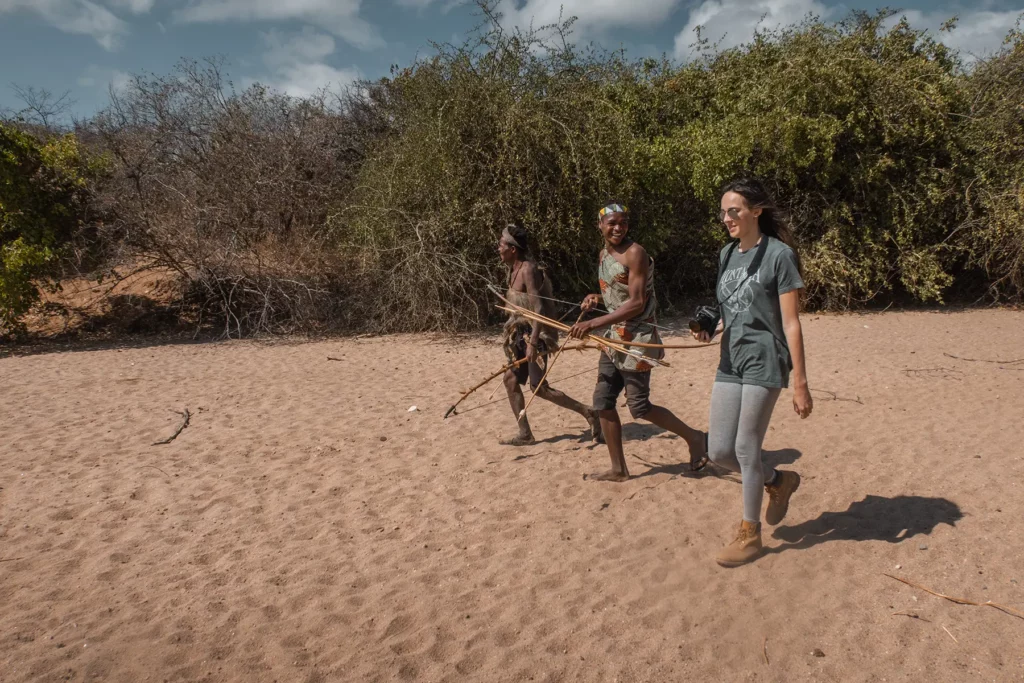
Balloon Safari in Tanzania Cost
Balloon Safaris can be a great way to watch a game from the air, especially in huge parks such as Serengeti.
Balloon Safaris are a great experience if you have the budget and typically cost $550-650 per person.

Kilimanjaro Hiking Costs
With a height of 4900m above sea level, the Kilimanjaro range is the highest in Africa, home to the Chaga tribe and very popular with tourists.
You can simply spend a day walking over the lower levels of the mountain or multiple days climbing to the summit.
Costs range from $2,000 – $6,000 per person for the total climbing trip which can last between 3 and 7 days. Park fees account for 50-70% of the total climbing cost.
Other Safari Costs
Below is a list of costs not included in the rates quoted by safari companies. Most safari quotes don’t include international flights.
Tips / Gratuities
Tipping is part of the culture in Tanzania. It’s preferred to tip in USD but you can also tip in Tanzanian Shillings, Euros and GBP.
I would normally tip my driver guide $20 per day based a party size of two i.e. $10 per parson in the party. If they have been exceptional, I may go slightly higher. Some safari companies have their own recommended tipping rates which may help them attract the most experienced guides.
It’s recommended to give your guide their tip at the conclusion of your safari.
Tipping in accommodation is at your discretion. If you wish to leave a tip, you can do so by leaving the tip in the tipping box at the end of your stay. Guideline tips are $5 per adult per night depending on the level of service.
You’re not typically expected to tip the Maasai or Hadzabe tribes if you visit them. Instead you can buy some souvenirs from their shops to show your support and appreciation. See my Souvenir price guides later in this guide for how much to pay.
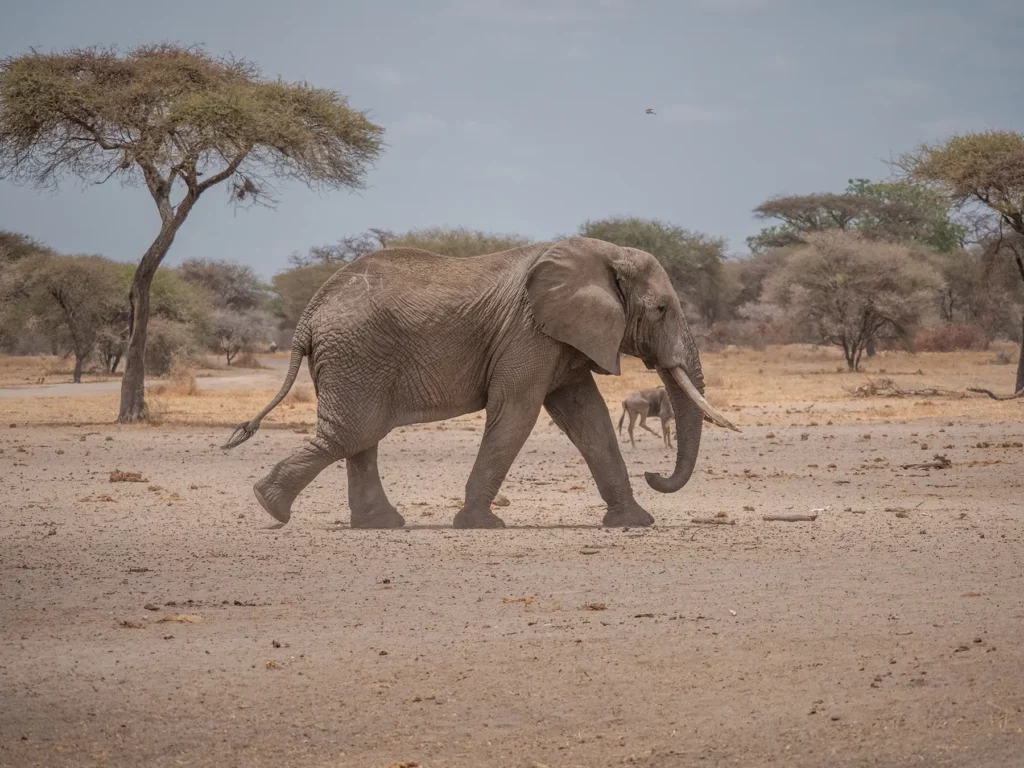
Visas
Visitors from most countries including UK require the ordinary Tourist Visa for $50.
Visitors from US require a Multi-Entry Tourist Visa for $100.
You can apply for a Tanzanian visa online here. e-Visas are usually processed within 10 days and allow travel for up to 90 days.
I also recommend taking a look at the below websites which gives up to date details on any entry requirements and mandatory vaccines:
US Travel State website for Tanzania
UK Government travel advice for Tanzania
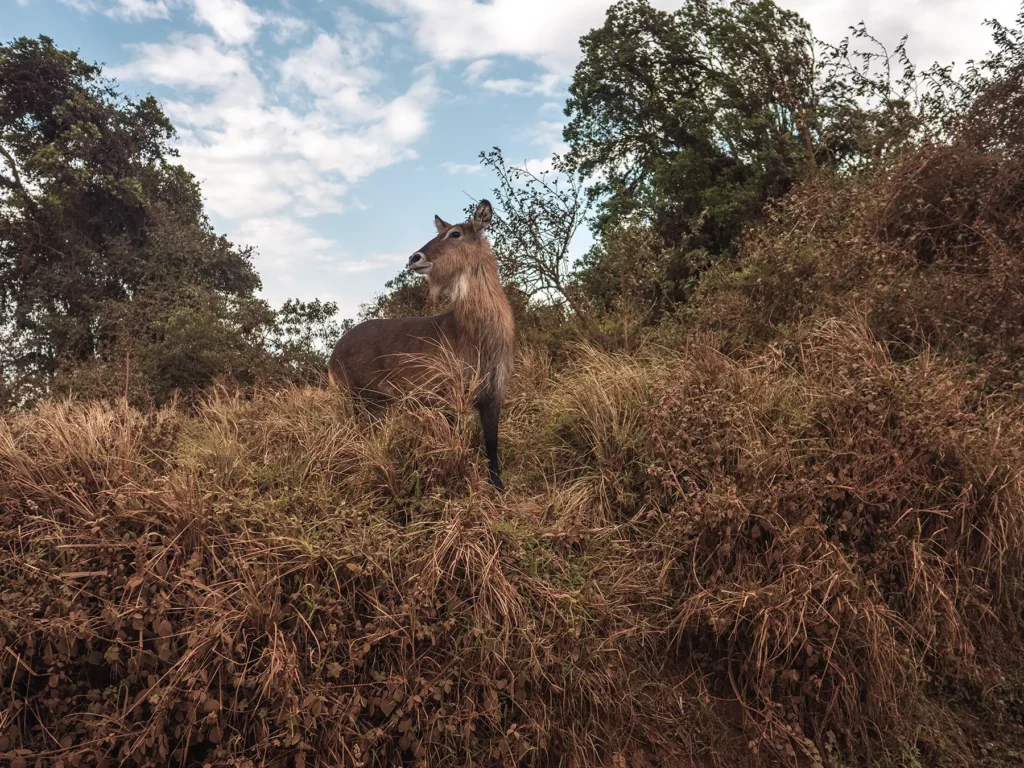
Souvenirs
I’ve been quoted as much as $400 for a large painting and as much as $80 for a tribal handmade bracelet. However, I typically politely negotiate prices to what I consider a reasonable level which is around $20-30 for a handmade bracelet and $40 for a smaller A2 size painting. Technically the best way to barter is to make an offer quite a bit lower than you wish to pay and then eventually meet in the middle. Sometimes I will also just state the max price I’m prepared to pay and let the seller take it or leave it.
I’m always very polite, friendly and respectful when bartering. I’m just looking for a fair price that I can afford and not to exploit the situation as many of the people are very reliant on money from tourism.
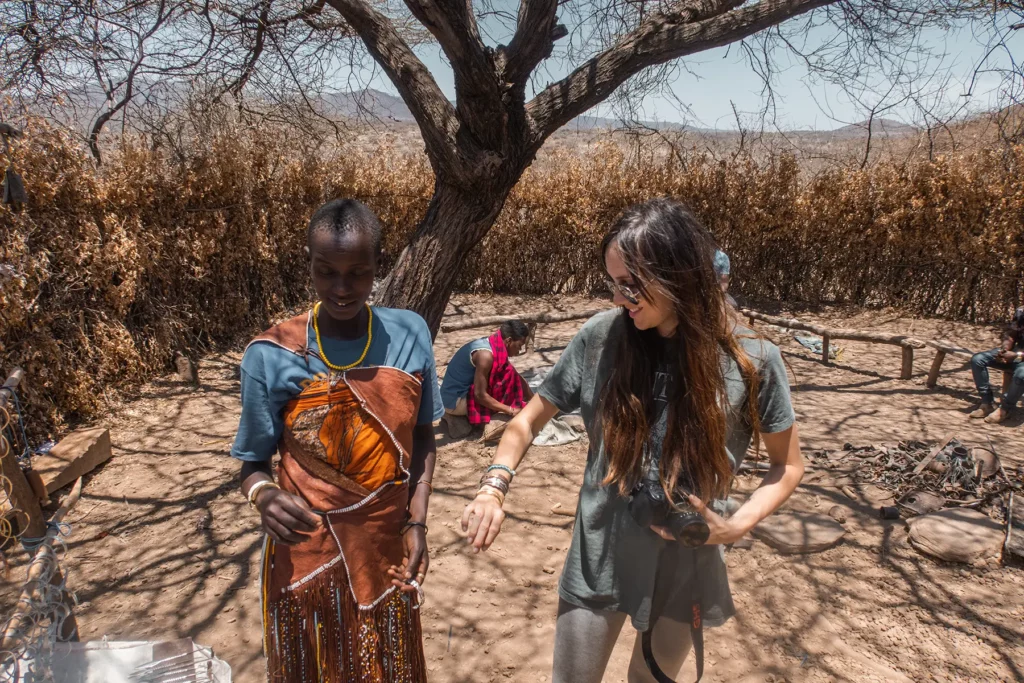
Clothing
As with all clothing there is a wide range of costs for safari clothing. As a general rule it’s going to be much cheaper to buy the safari clothing before your trip rather than in the hotel shops.
If you’re just going on safari from inside a safari vehicle, light muted coloured clothes (avoid bright colours such as red or orange) will be fine to keep cool and not attract bugs. You can wear a proper safari outfit if you wish but it’s not essential.
Don’t wear army style camouflage as this can be illegal.
If you’re going on walking safaris then proper safari gear is advised to ensure you don’t startle the animals.
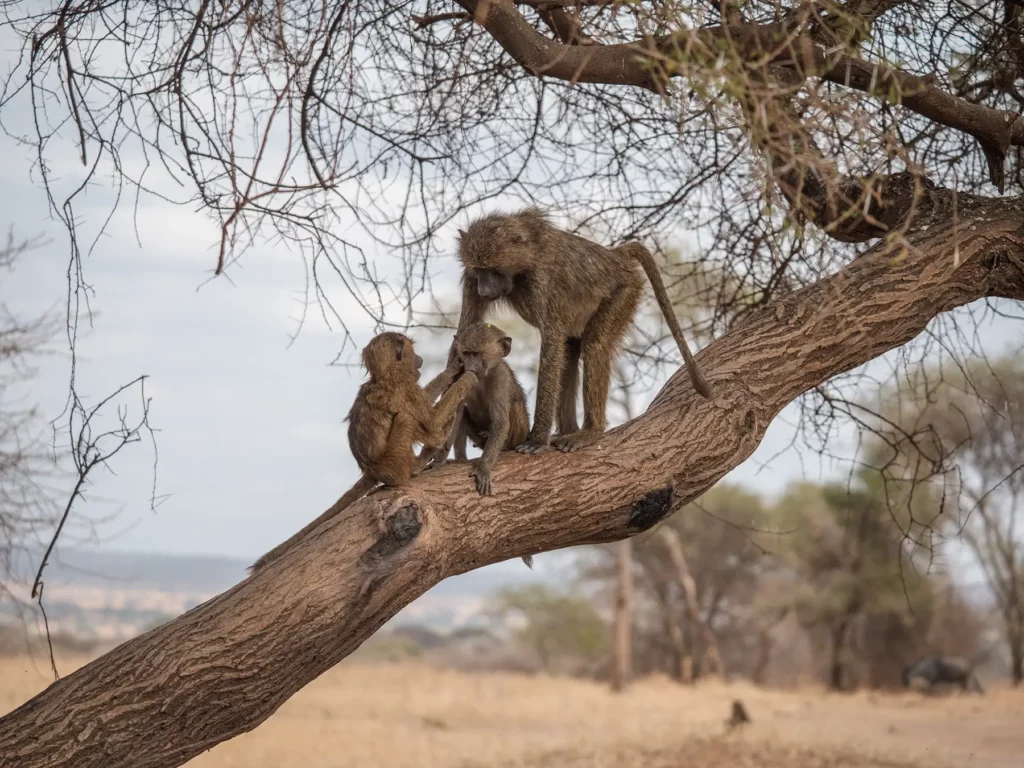
Vaccines & Medication
The cost of travel vaccinations at a travel clinic for patients without health insurance typically includes:
An initial consultation fee of $15 to $100
A shot administration fee of $10 to $20 per shot
The cost of the vaccines, which can range from less than $10 per dose to $150 or more per dose
You can find information about recommended vaccinations below:
US citizens Guide to Tanzania vaccines
UK citizens Guide to Tanzania vaccines
Anti-malarial tablets are also recommended for Tanzania and these cost around $2 per day. You would typically take the tablets for a few days before your trips and 4 weeks after. Please check instructions for your specific Anti-malarial tablets.

How Much Cash To Take
You can pay for most costs on your card. I found it easy enough to draw out money on my Visa Cards but Mastercard only seemed to work infrequently. Both cards worked fine for paying for costs on chip and pin machines.
Remember to tell your bank that you’re travelling through their App or over the phone to ensure they don’t auto-flag your overseas transactions as potentially fraudulent and block your transactions by mistake.
Currencies which are windy accepted are Tanzania Shillings and USD.
The things which I used cash for were:
Tips: Budget around 20-30 USD per person per day in total for tips for your driver, porters, other guides etc.
Buying Souvenirs and small purchases at markets: Around $35 for a handmade necklace etc. You might wish to take $200 for souvenirs.
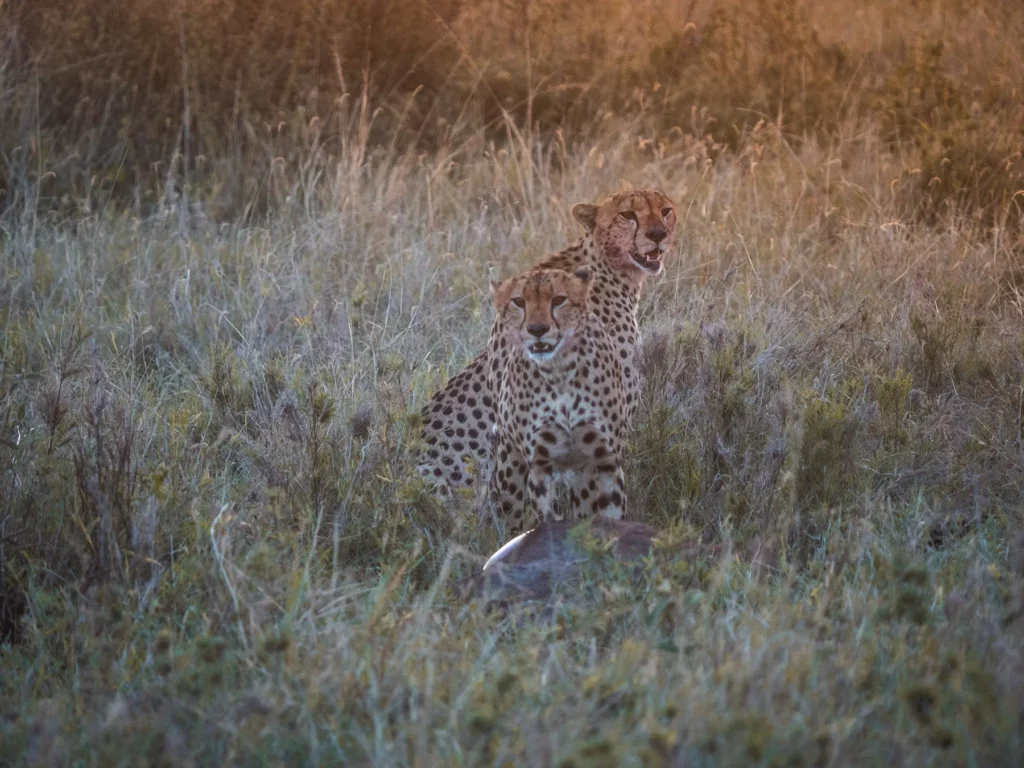
Final Thoughts
As you’ve probably gathered, Tanzania is not the cheapest place to go on safari. However, the country is one of the best safari destinations in the world which makes it money well spent.
The higher costs to go on safari in Tanzania actually contribute to the safari experience in the country as it ensures the parks are not overcrowded as can be the case with cheaper safari destinations which leads to better wildlife viewing.
The Serengeti and Ngorongoro Crater parks are simply out of this world with all of the big 5.
The cultural aspect of Tanzania is also unrivalled with access to the Maasai tribe and one of the Hadzabe, one of the last hunter gatherer tribes in the world.
Local safari operators such as ones I work with myself represent the best value for money whether you’re looking for budget, mid-range or luxury. You can get free quotes on Safaris By Ella
If required, costs can be reduced further travelling out of peak season and choosing accommodation outside of the national parks.

Embark on the Safari of Your Dreams
Save time and ensure an incredible safari experience by getting quotes from my recommended local safari companies
I’m here to make booking your perfect safari quick, easy and risk-free.
Join the rapidly growing tribe of over 1,000 travellers who’ve booked their dream safari using my insider tips and recommendations.

It takes under 60 seconds to fill out the form and in under 48 hours you will receive multiple, no-obligation proposals from my favourite local tour operators with glowing online reviews.
Get your free no-obligation safari quotes and my top safari tips and recommendations
Read More Tanzania Guides
For an overview of planning your safari, you can read my Ultimate Tanzania Safari Guide.
Tanzania Itineraries
Recomended itineraries and how to book them.
7-10 Day Tanzania Safari Itinerary & Costs
5-Day Tanzania Safari Itineraries & Costs (6 unique Itineraries)
3-Day Tanzania Safari Itinerary & Costs
2-Week Tanzania & Zanzibar Safari Itinerary & Costs
3-Week Tanzania Safari Itinerary & Costs
10-Day Tanzania Honeymoon Itinerary & Costs
Tanzania and Kenya Itineraries
Multi-country itineraries and how to book them.
10-Day Kenya and Tanzania Safari Itinerary
2-Week Kenya & Tanzania Safari Itinerary
Costs & Planning
How to get the most bang for your buck and the best time of year to visit depending on what you want to do and see.
Tanzania Safari Cost – Everything You Need to Know!
The Great Wildebeest Migration Guide
Zanzibar Island – The Complete Guide
National Parks & Reserves
Complete guides to the best and most famous safari reserves, including the wildlife you’ll see, entrance costs and best time to visit.
Other Popular Safari Destinations
How to Book Your Safari
Save time and ensure an incredible safari experience by getting quotes from my recommended local safari companies.
Join the rapidly growing tribe of over 1,000 travellers who’ve booked their dream safari using my insider tips and recommendations.

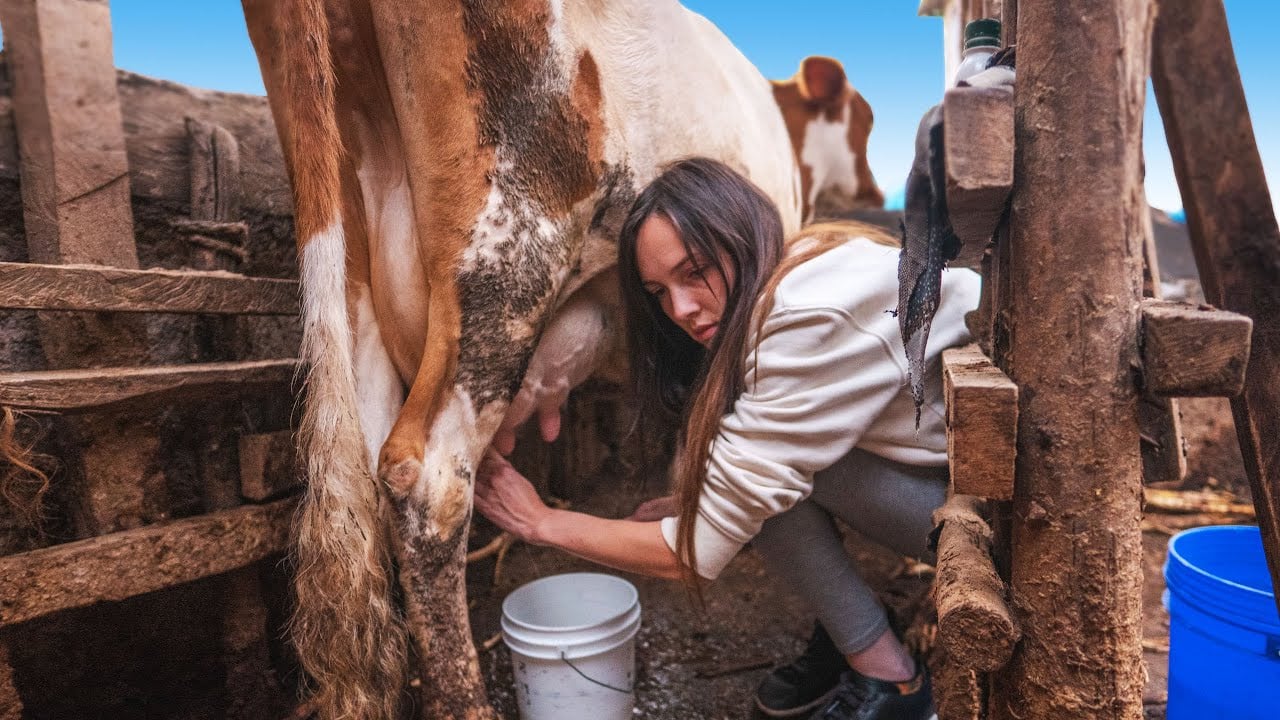
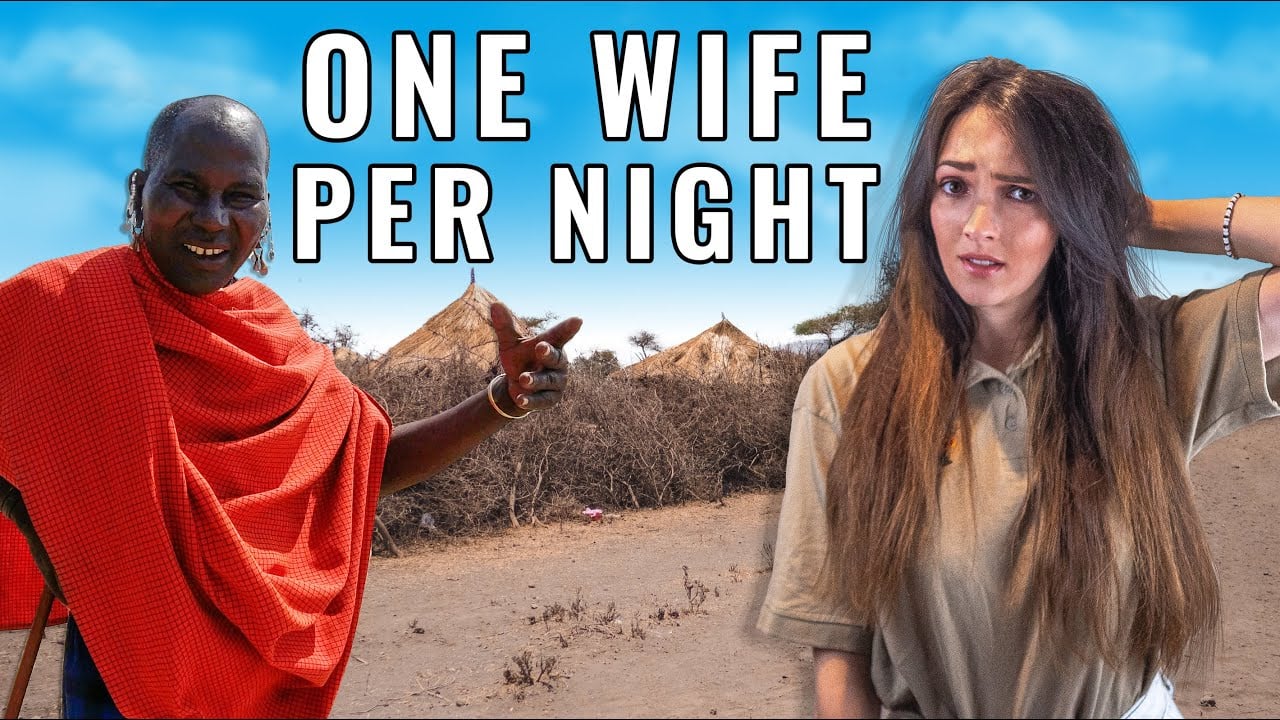
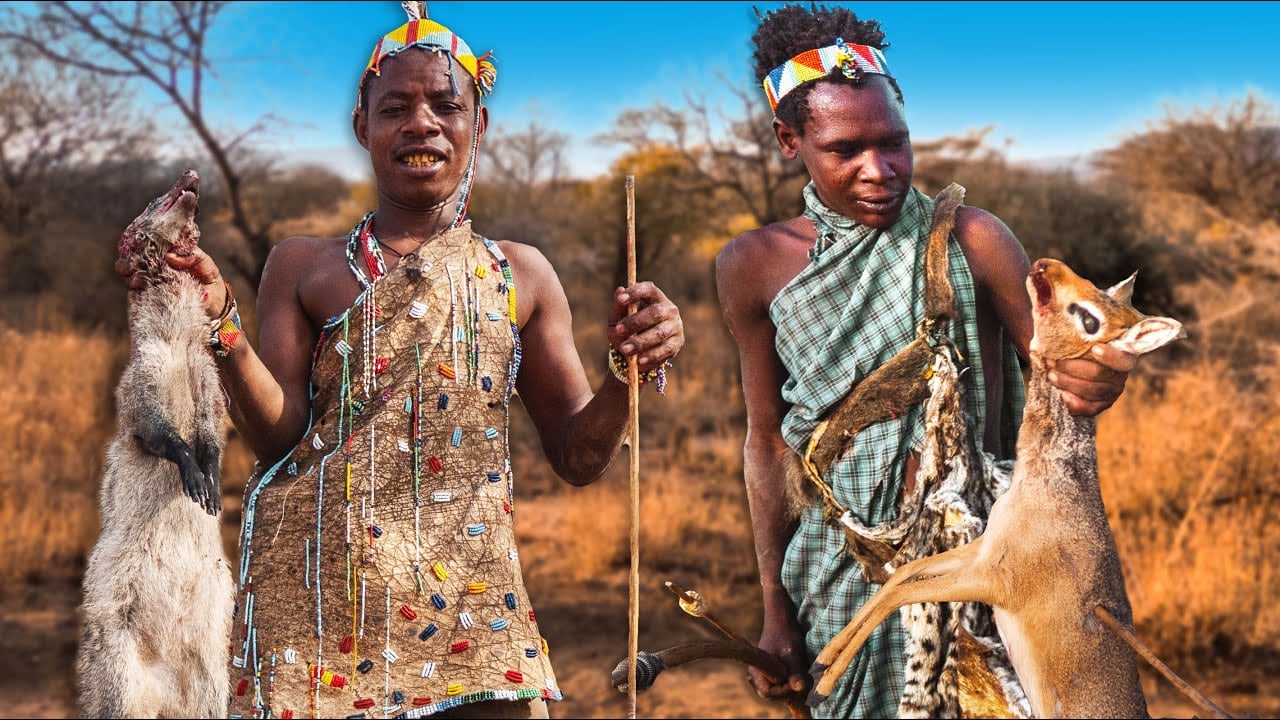
Fantastic guide thanks, it saved me a lot of time! I used your itinerary creation service on safaris by Ella and I’m very impressed. I’m just about to give the go ahead to one of the local suppliers you recomended.
So glad you found it useful and I hope you have an amazing trip!
Thanks a tonn for such an expansive and in depth information. Gratitude.
Loved reading this guide. Thanks for providing complete details of the itinerary.
Hi Nitu! I’m so happy that you found the guide useful. I hope you have a fantastic trip to Tanzania!
Informative post
Thank you very much!
Ella, I am a Widow and a Senior (73yrs old). I need a bed, since I can’t be on the floor in a sleeping bag. I can walk, but only short distances. I’m not disabled but have old age issues. Lol. I will require moderate sleeping arrangements. How soon should the Safari arrangements be made. What seasons can you see the most safari animals. I also would like to go see the Massai tribe. I have read over the information on your site Safaris by Ella!!Any suggestions ?
Hi Michelle! I’d recommend that you look for a mid-range safari as the accommodation options are always very comfortable and always come with ensuite bathrooms as well. Some budget accommodations have shared bathroom facilities which is why I’d recommend mid-range.
In order to make sure that you get all the lodges that you desire, I’d recommend booking at least 2 months in advance, perhaps even further in advance if you are looking to visit in high season (July, August and September). Unless you want to stay at an incredibly popular hotel such as the Four Seasons, you won’t need to book further than 6 months in advance.
The long dry season between June and October is the best time to visit Tanzania. The lack of vegetation makes wildlife easier to spot and the parks are always full of animals at this time of year. Another great time if you are specifically interested in the Serengeti is January and February as this is the wildebeest calving season – the plains will be dotted with baby animals!
A visit to the Maasai tribe can easily be arranged by your tour operator. You can visit the Maasai throughout the year.
I hope this helps! Please don’t hesitate to get in touch if you have any further questions 🙂